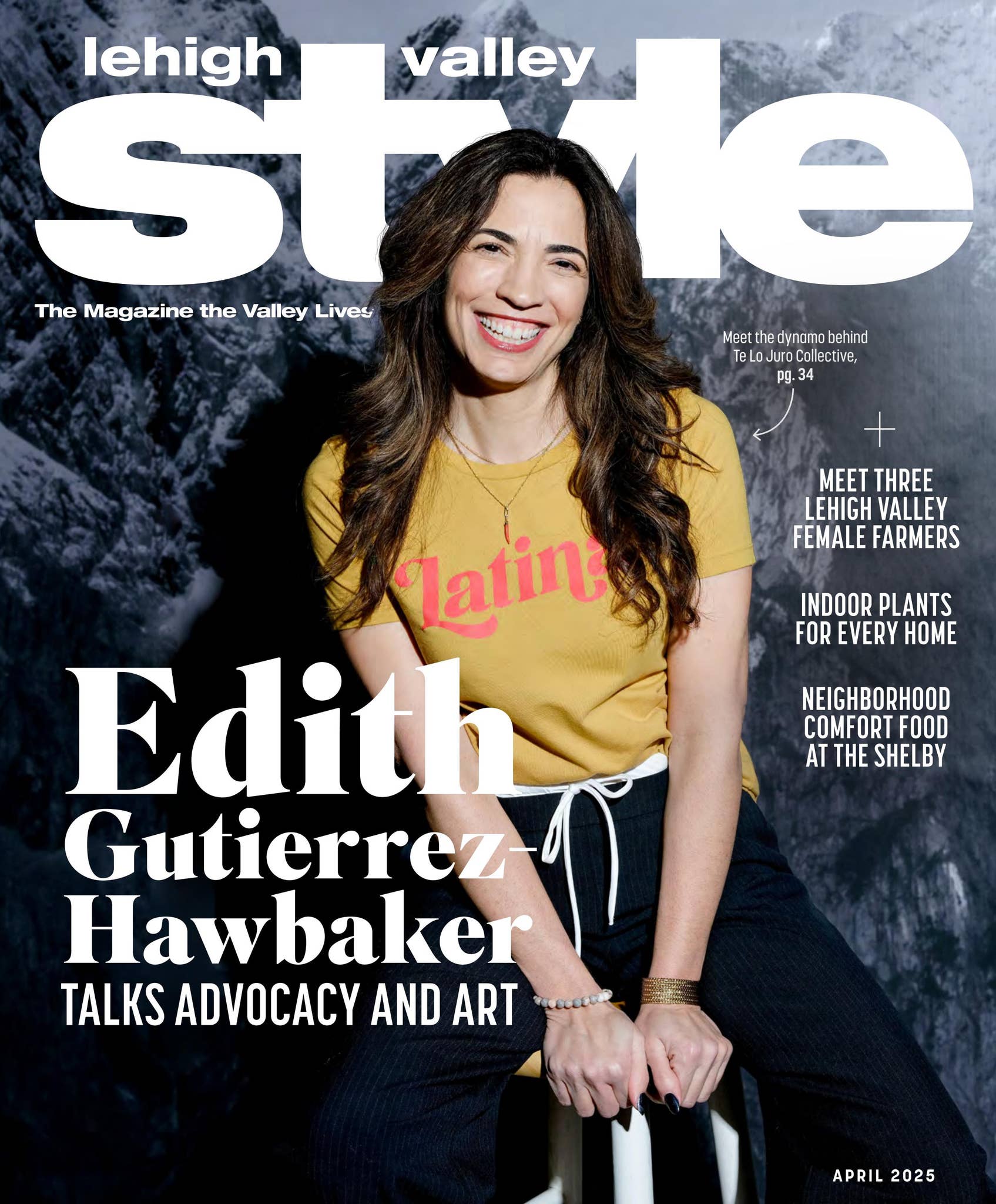We're encouraged to shop local for the victuals that crowd our dinner table, so why should the centerpiece be any different? Flowers are more than just a pop of color; they're a memory jogger, a conversation starter, the finishing touch to countless special events. And, for a community of women living and working right here in the Lehigh Valley, flowers represent a livelihood. Now meet some of the growers toiling away to make sure our region is flush with eye-popping peonies, technicolor tulips, stunning dahlias and all of their fragrant cousins.
Flores Temporis
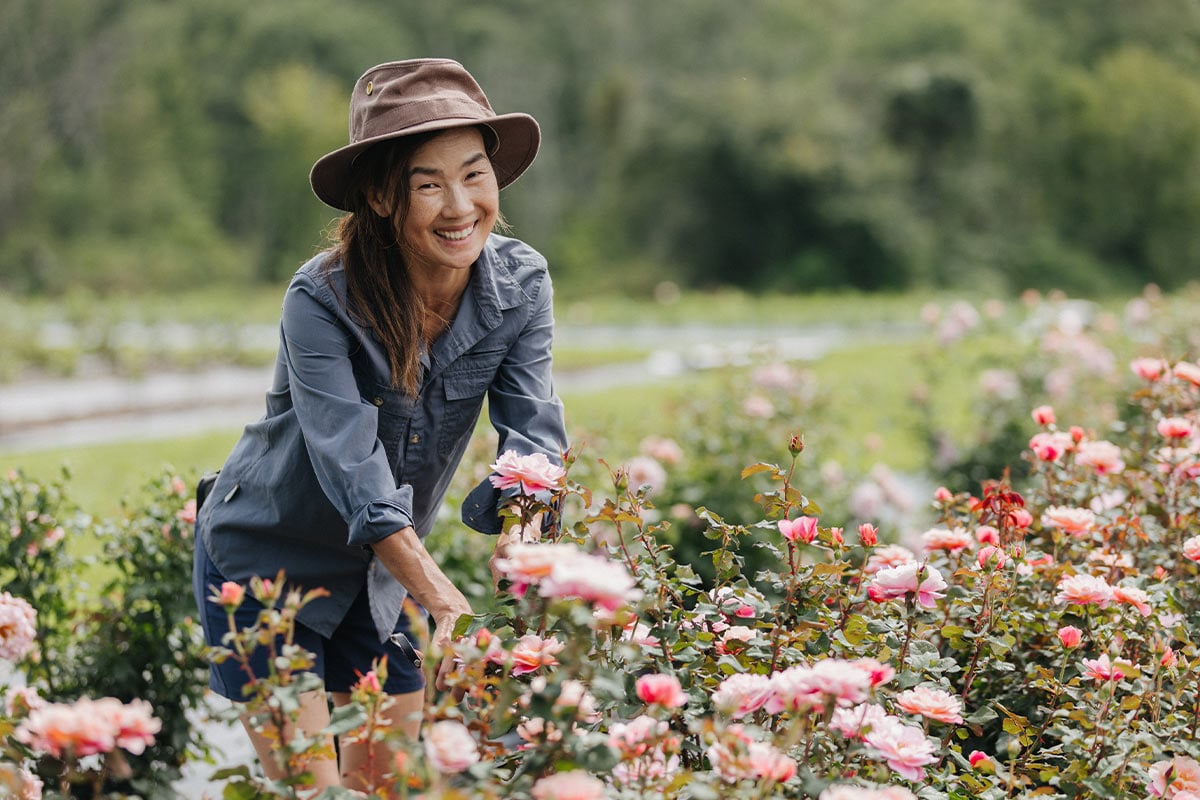
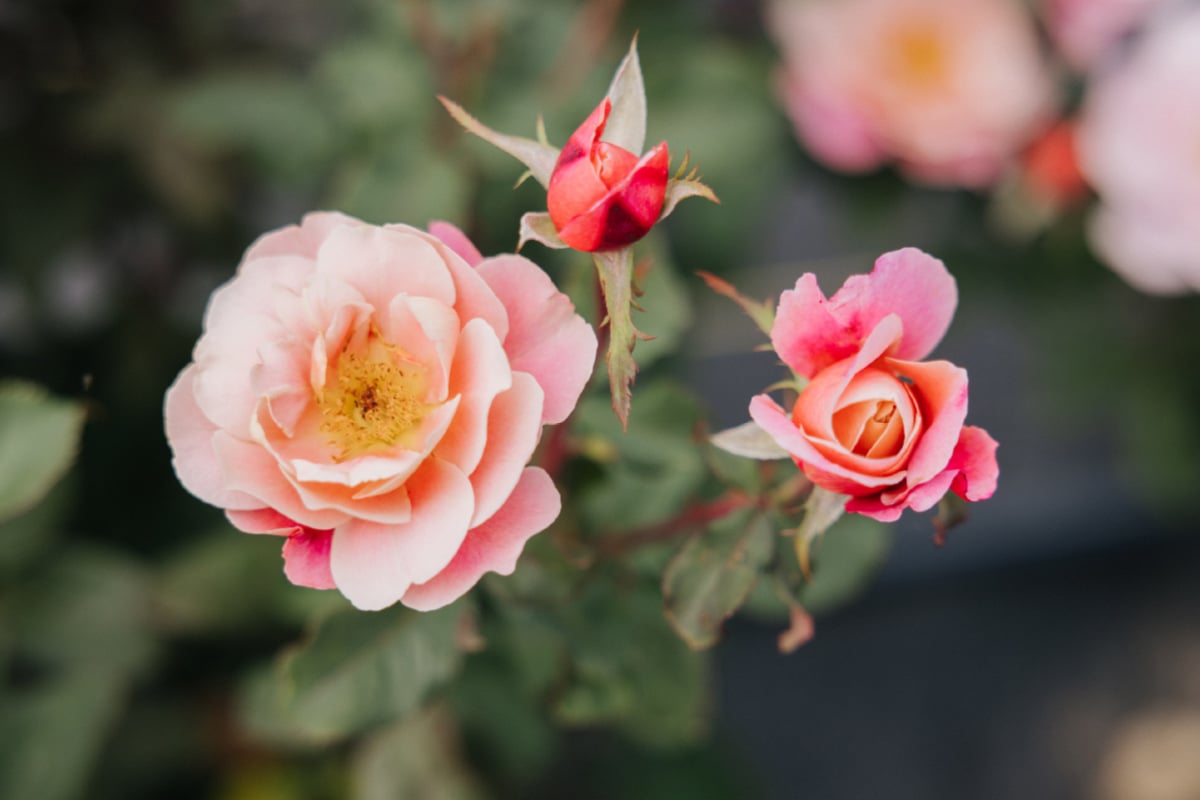
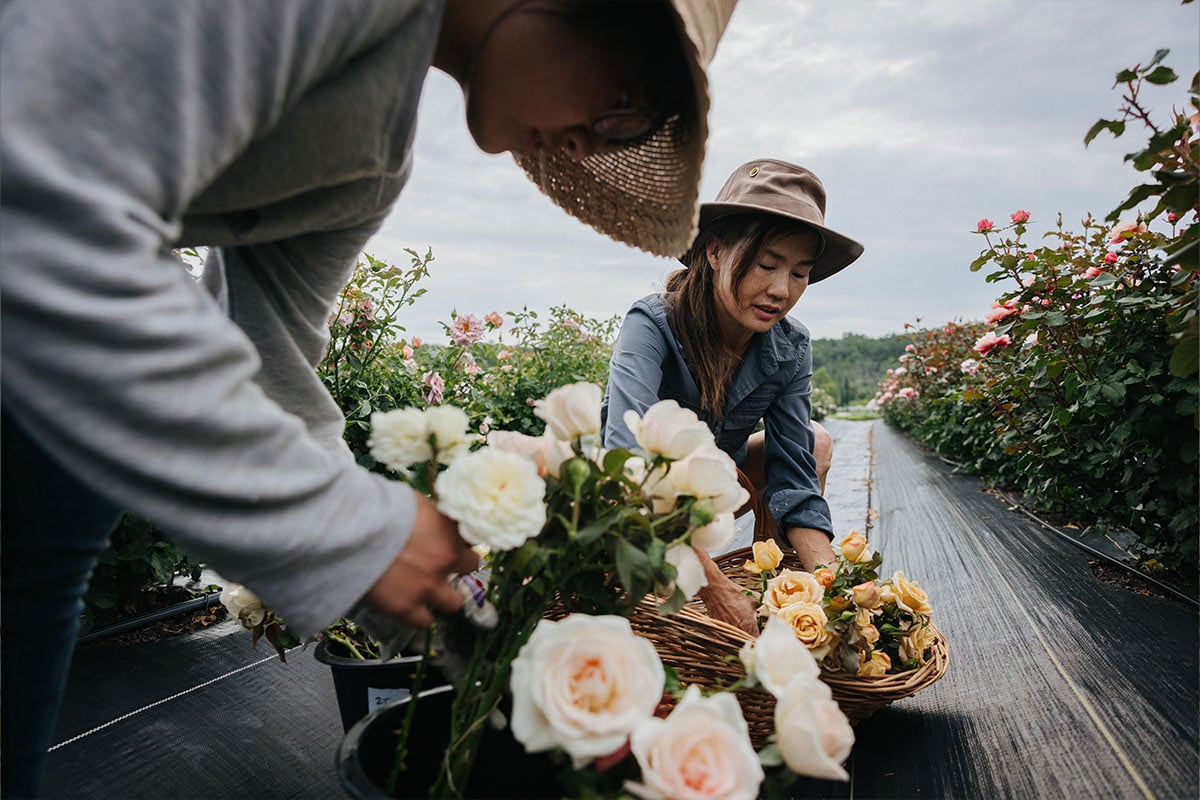
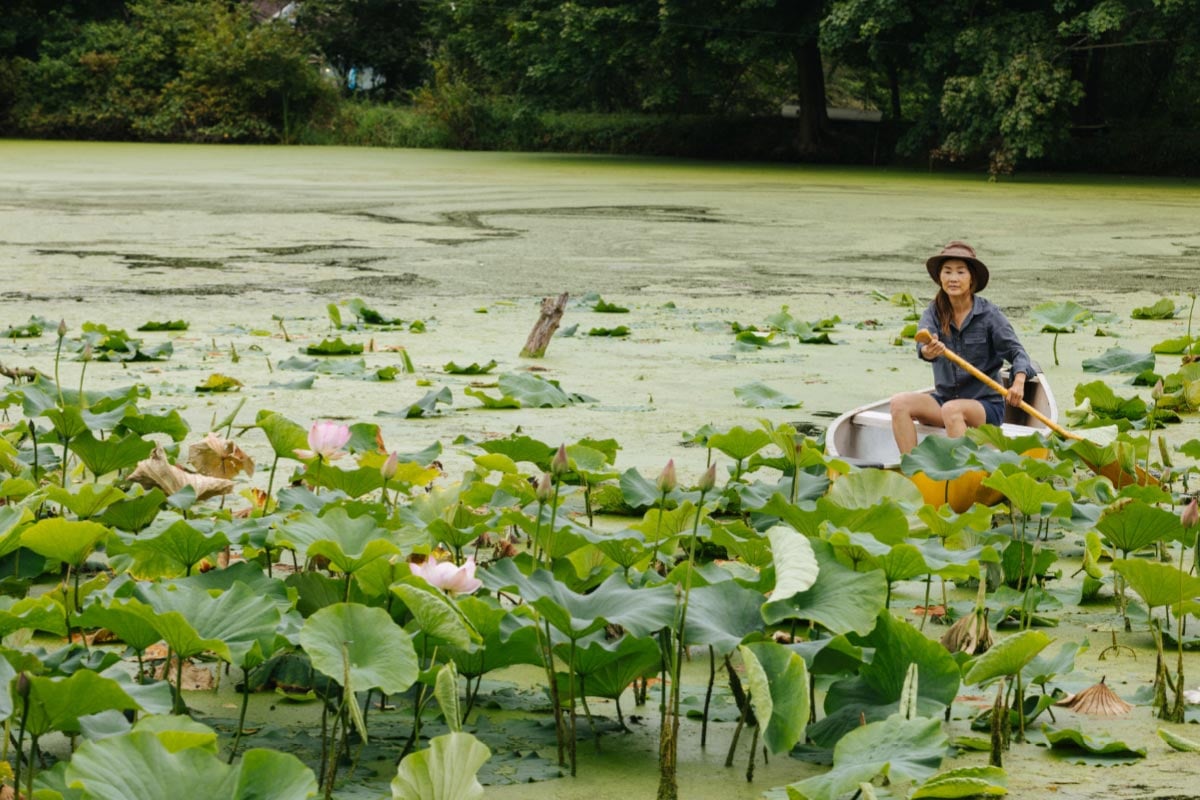


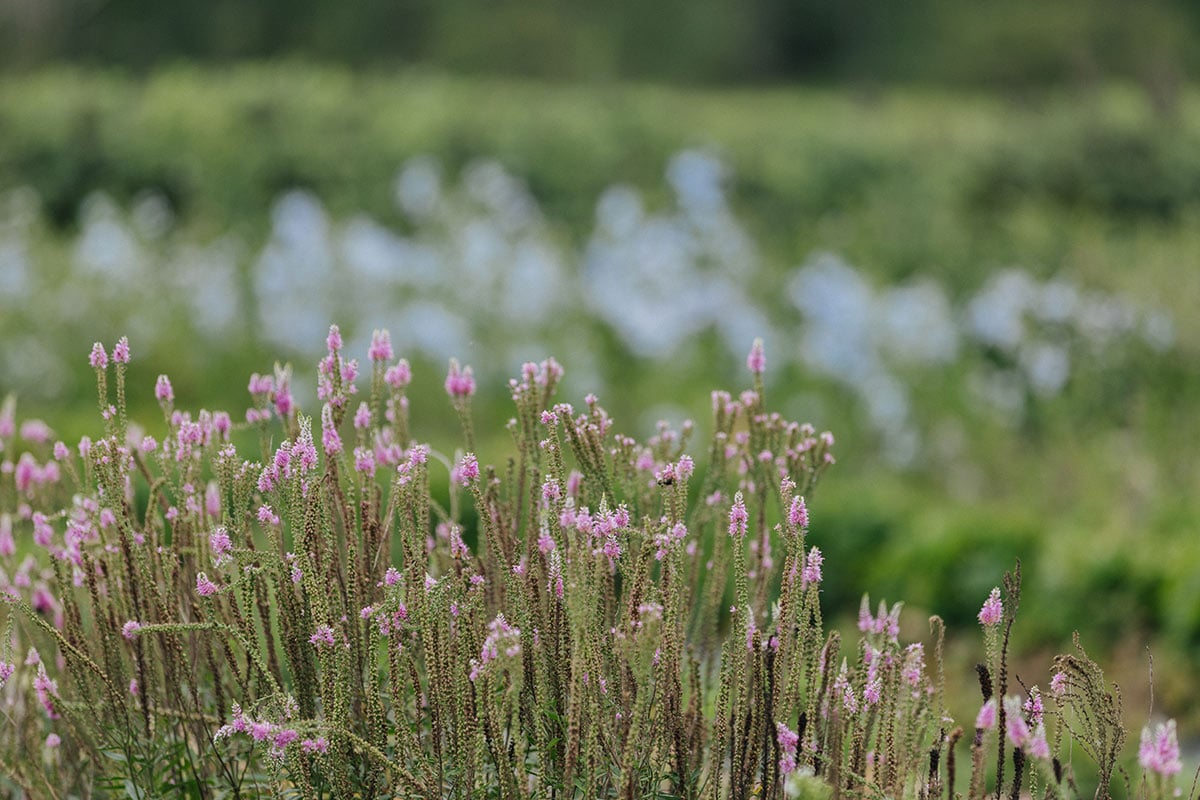
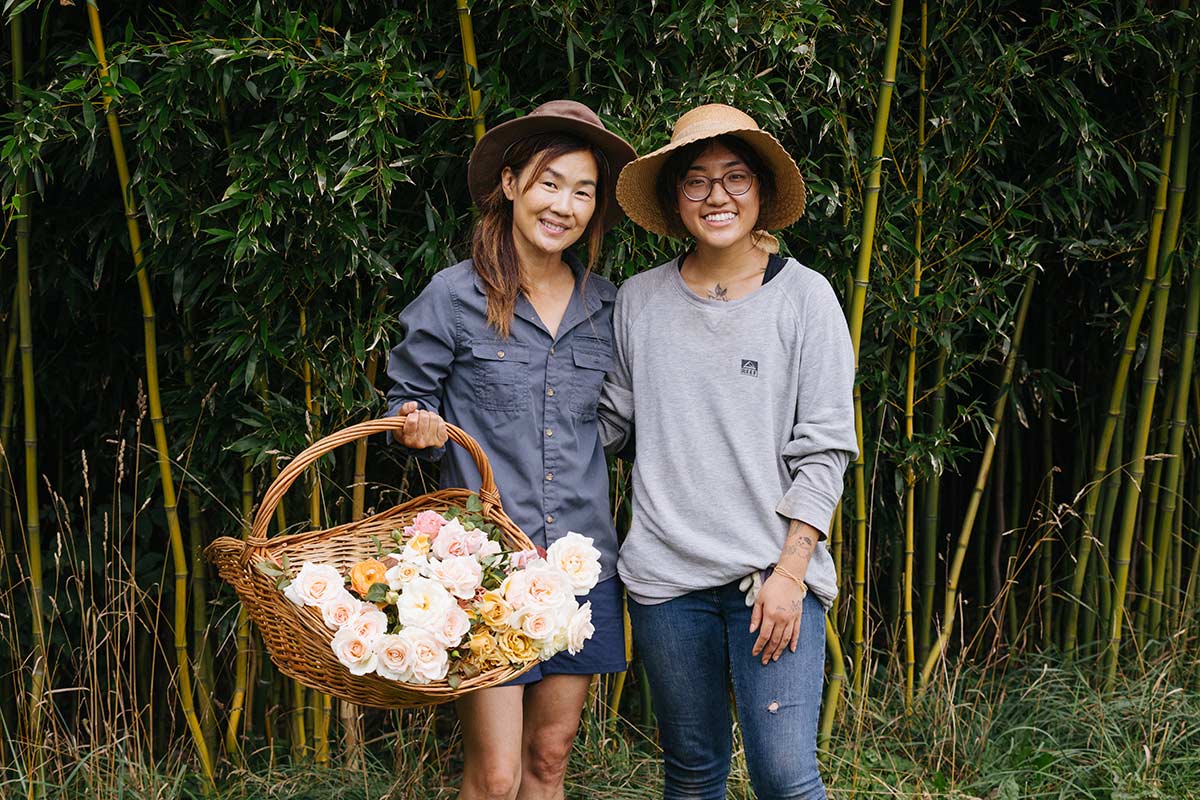
SeJean Tuma was working in hospitals and academia as an epidemiologist when the birth of her son in 2007 helped her see things through a new lens. “One of the gifts he gave me was rediscovering nature,” Tuma says. “He loved being outside, he loved the natural world.” She points to happy memories of making sunflower houses and scarlet runner bean teepees with him as one of the catalysts that nudged her into falling in love with flowers. That's not to say she was new to the word of floriculture when she decided to roll up her sleeves and get serious about making a career change: “I was sort of an extreme gardener for over 10 years before I decided to try to turn this into a business.”
Flores Temporis, based in Quakertown, is the fruit of her labor. Tuma is in her sixth professional growing season, specializing in high-end, specialty cut flowers and foliage, such as garden roses, fresh lotus pods, rare cultivars of peonies and dahlias. She also has plans to branch out in 2024 with new offerings at the farm, including educational workshops, photography sessions and tours so visitors can see the curated collection of flowers in peak bloom.
Tuma is passionate about using environmentally friendly practices and encouraging all petal patrons to support local growers. Flowers that are widely available commercially are often shipped in from overseas and so are bred to be hardy to withstand the trip; the end result is often a stiff, lifeless bloom that's lacking in fragrance, Tuma says, which is a major loss because “fragrance is so integral to the characteristics of what we think of in a flower.”
Shopping local also gives meaning to what otherwise might be an anonymous transaction for the buyer. “It's an actual person that's out there growing these things with real love,” Tuma says. “And I hope that shows through in the flowers I offer.”
Jolie Flowers
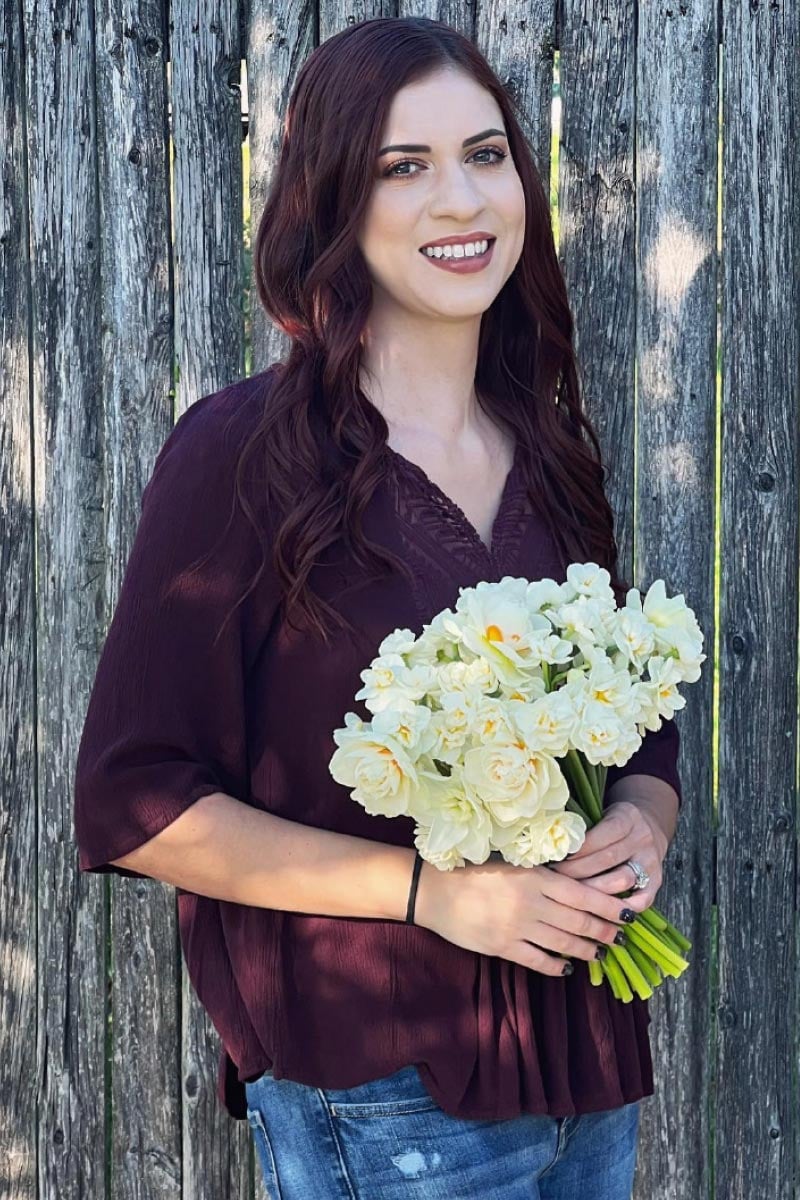
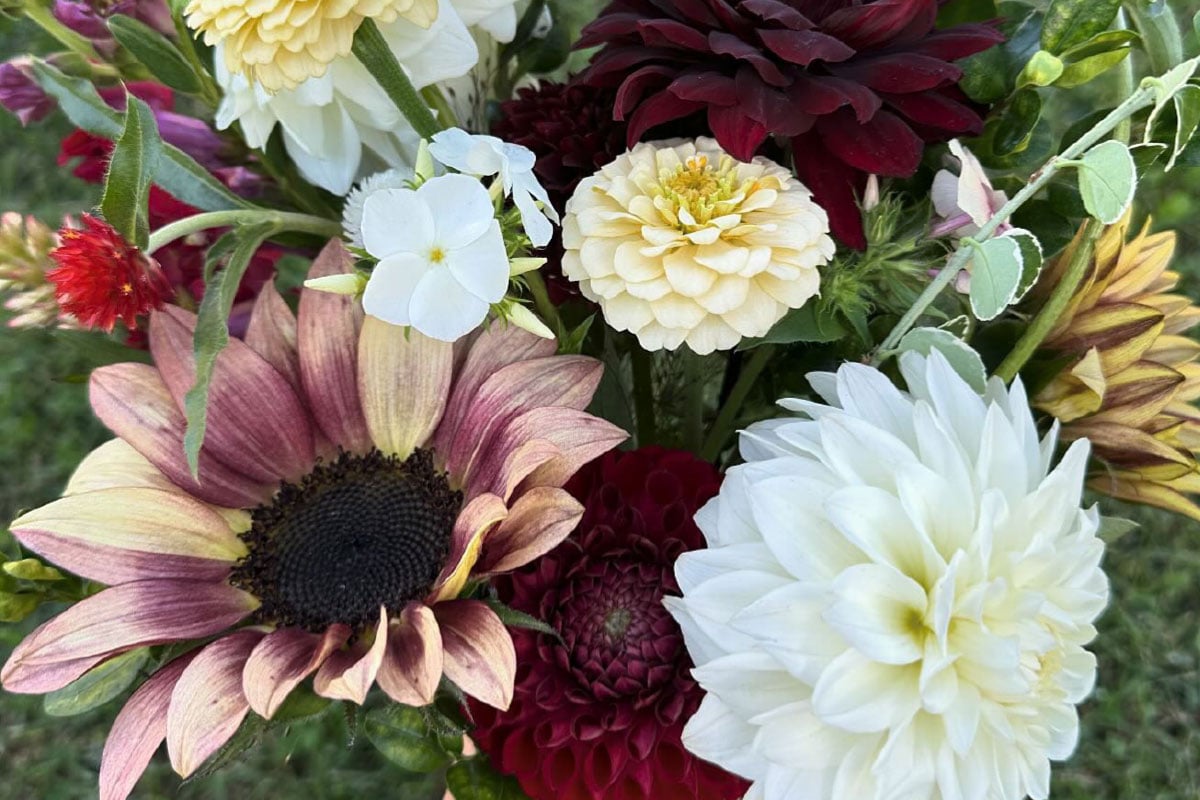
Angelena Galbraith's foray into the flower business started simply enough: she wanted to grow one of her favorite flowers, the dahlia, in her backyard. Her success, along with an itch to do something different beyond her usual 9 to 5, inspired her to keep going, leading to the creation of Jolie Flowers. She's gradually been expanding her growing space at her family's Bethlehem home ever since, now offering an array of specialty flowers, with the bulk of them being summer annuals. Galbraith recently welcomed her first child with her husband; while she maneuvers through new motherhood, she's also learning to navigate the challenges of the growing business, including the unpredictable weather: “I remind myself that there is a community of flower growers out there to lean on, both for knowledge and to share the beauty of flowers.”
Rising Hill Farm
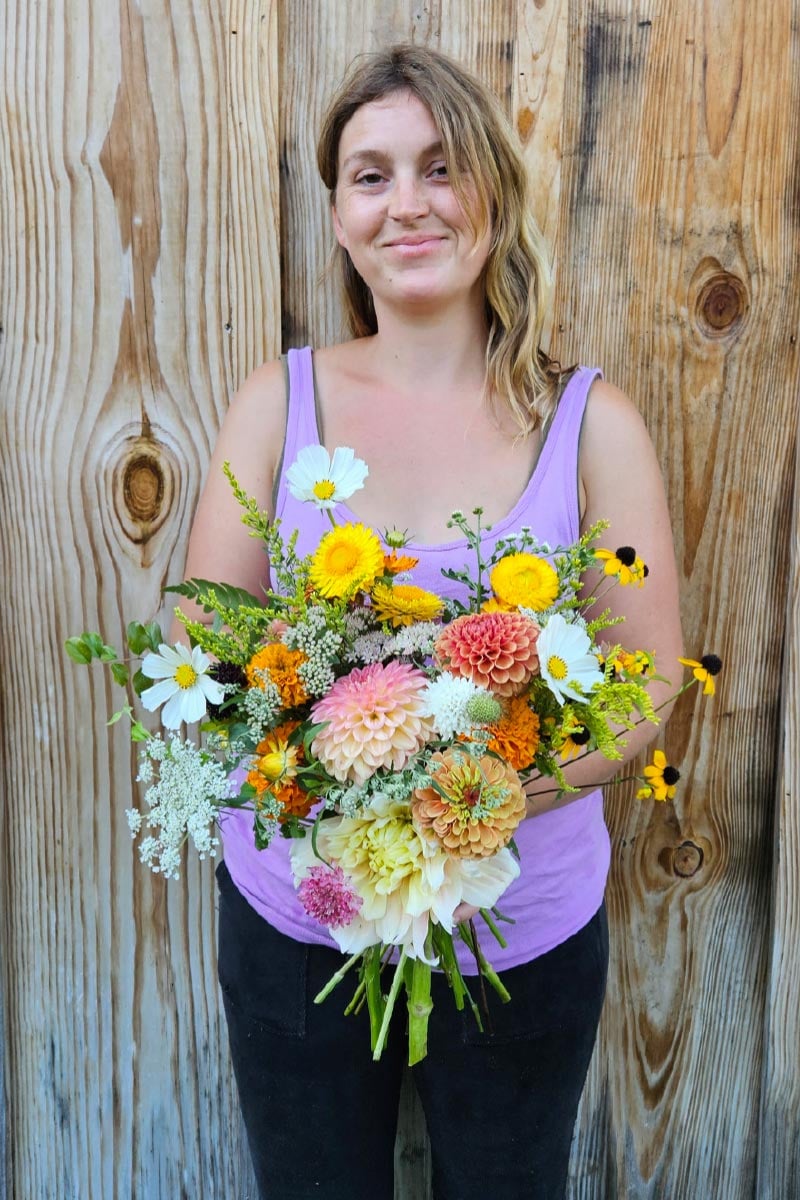
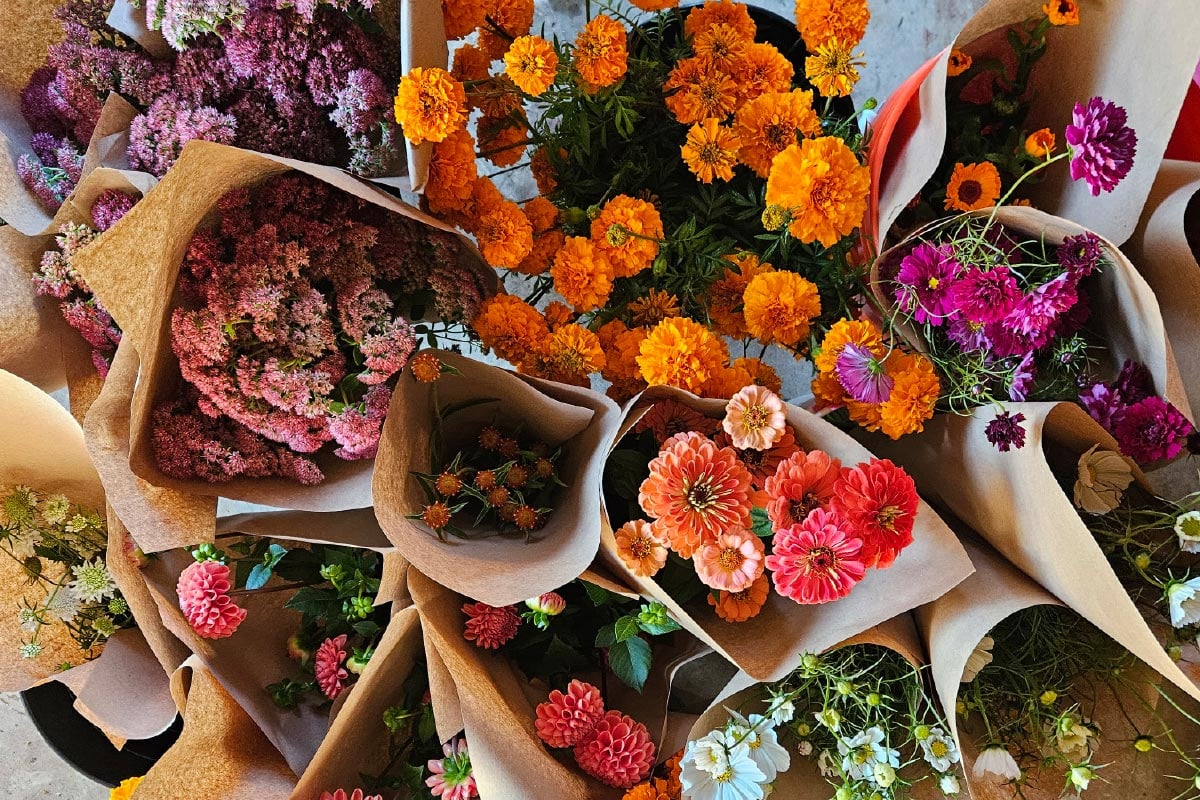
Rising Hill Farm officially began in 2015, but founder Amber Lagonegro started cultivating her future career much earlier than that. She spent a lot of time soaking up the outdoors while growing up in rural Bucks County and later earned a bachelor's degree in environmental science from Delaware Valley University. She started out growing vegetables on rented land before making the switch to flowers; she and her husband purchased a 16-acre plot in Springfield Township in 2018. Lagonegro has been focused on building up their perennial crops—roses, peonies, lilacs and the like—while also growing thousands of annuals from seed every season. “My favorite part about being a flower farmer is all the time I spend immersed in the beauty of the natural world,” she says. “I feel amazed that I can make a living that brings me such joy.”
Fenimore & Rutland
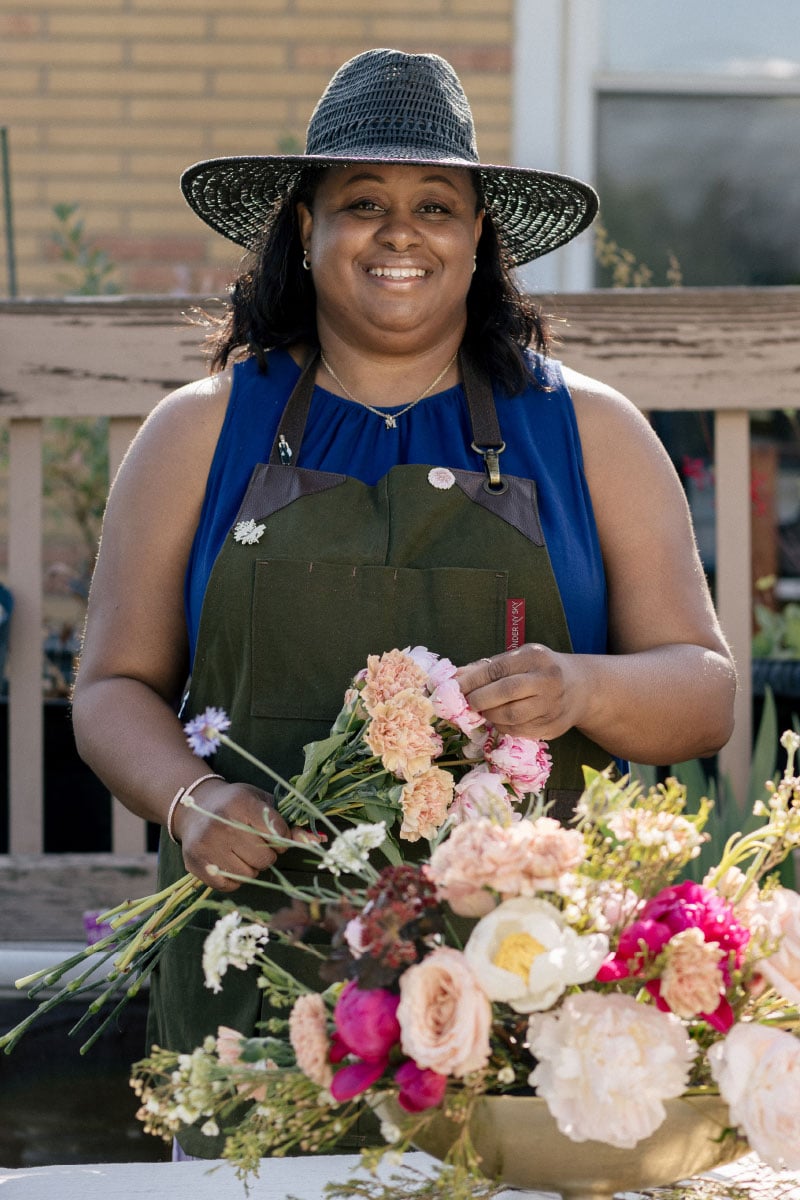
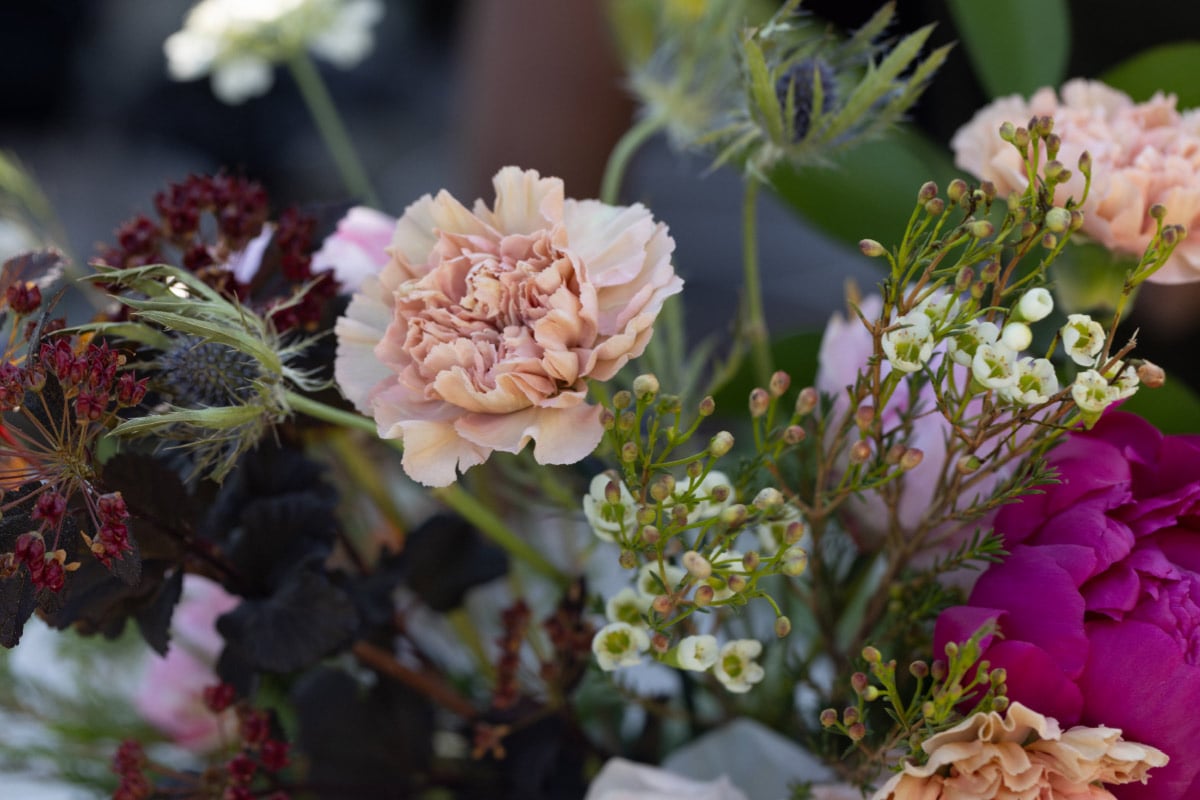
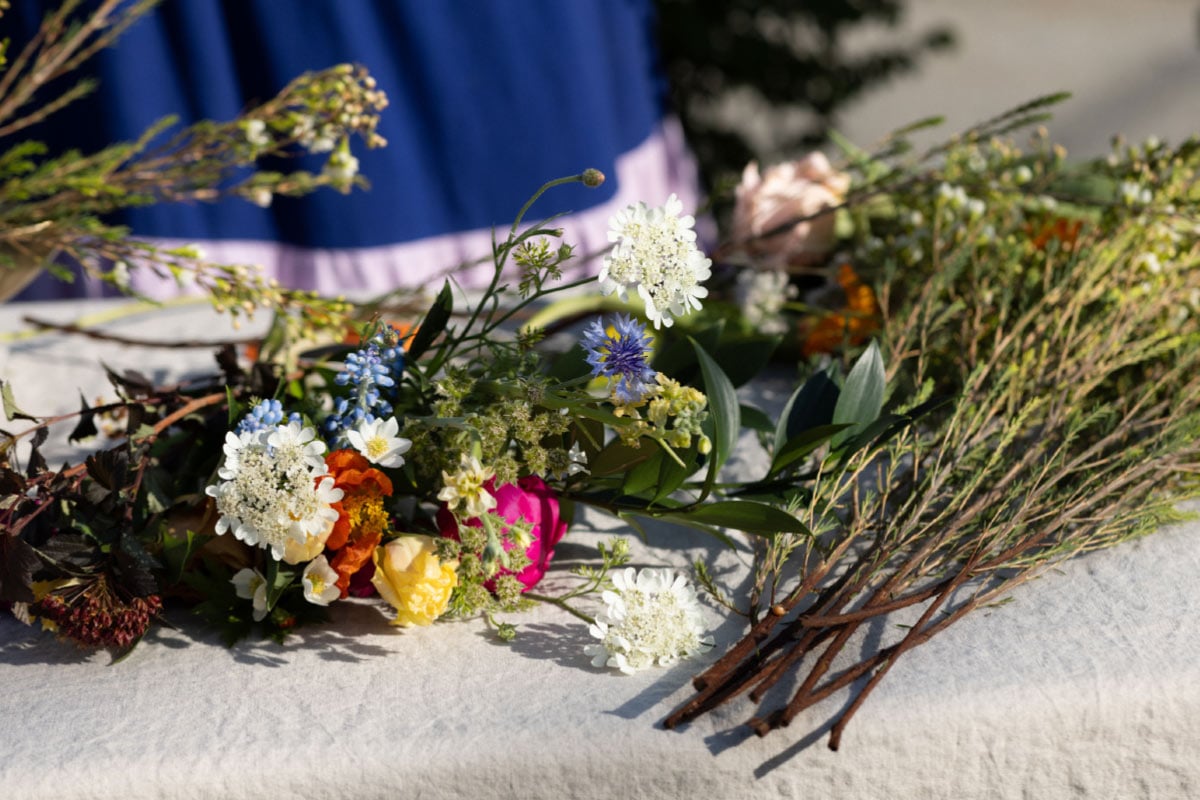
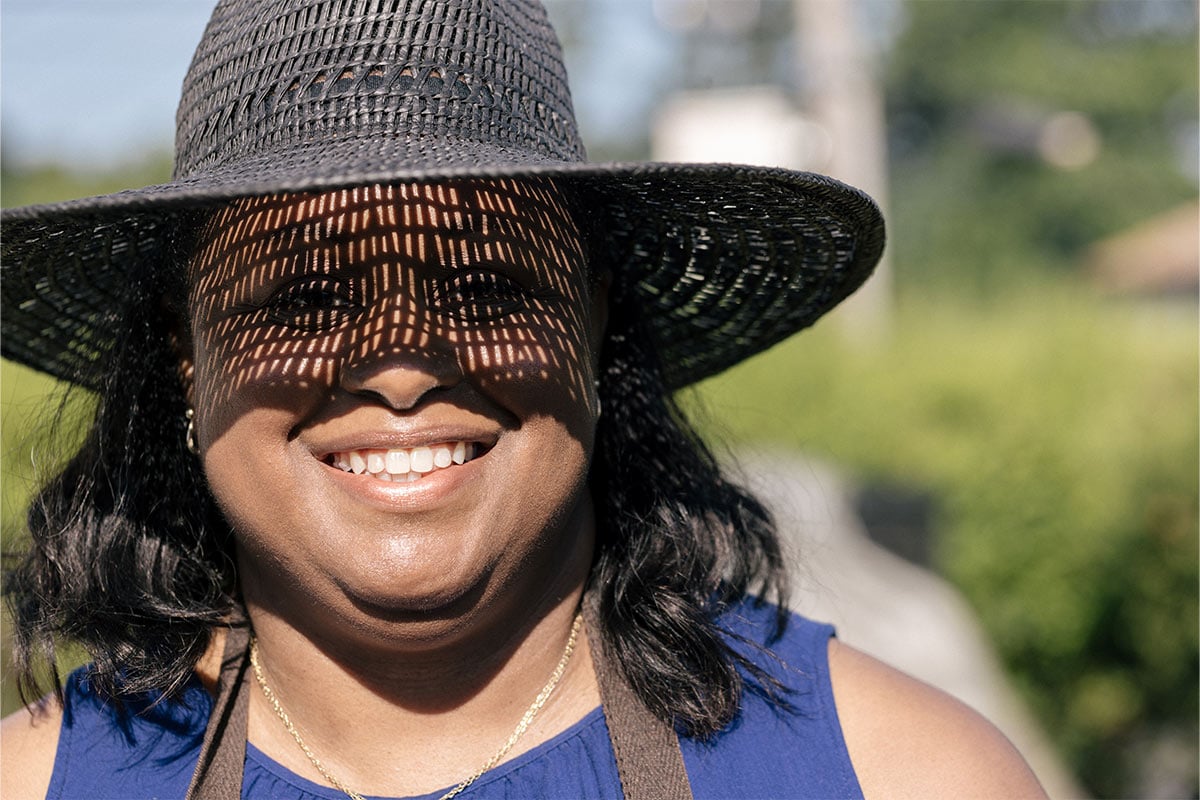
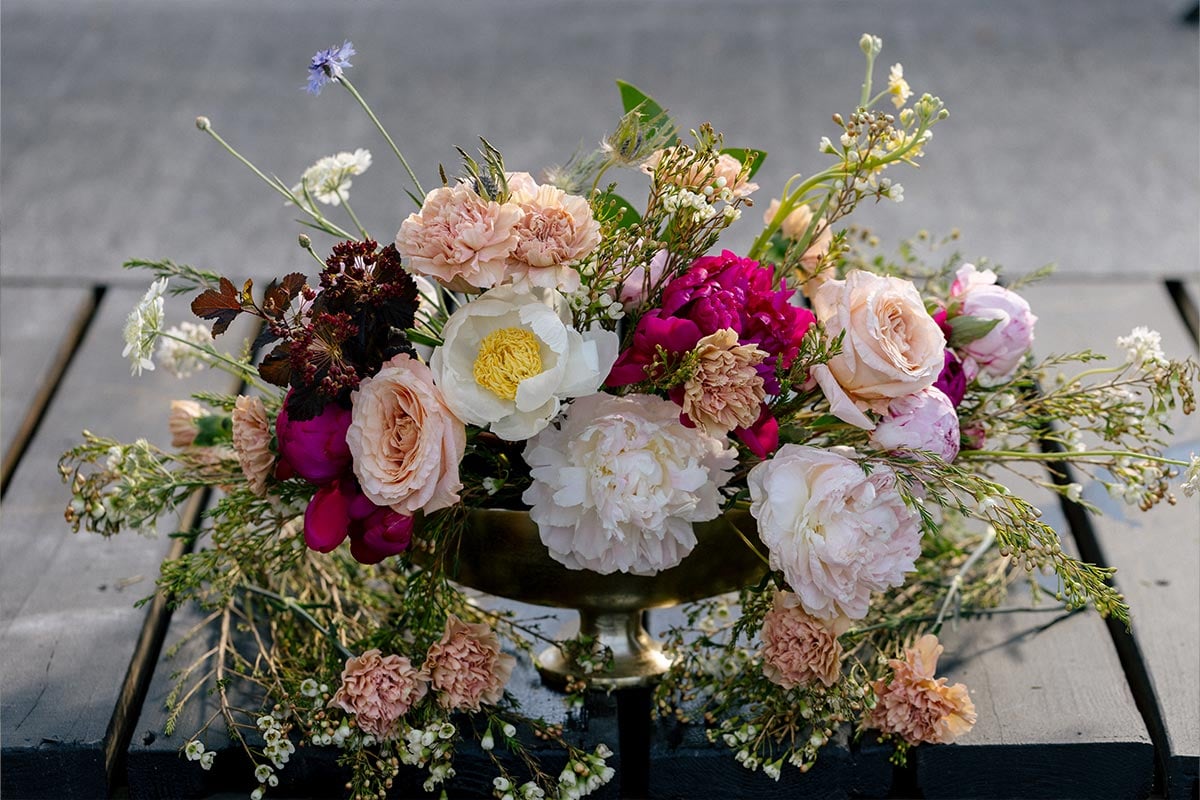
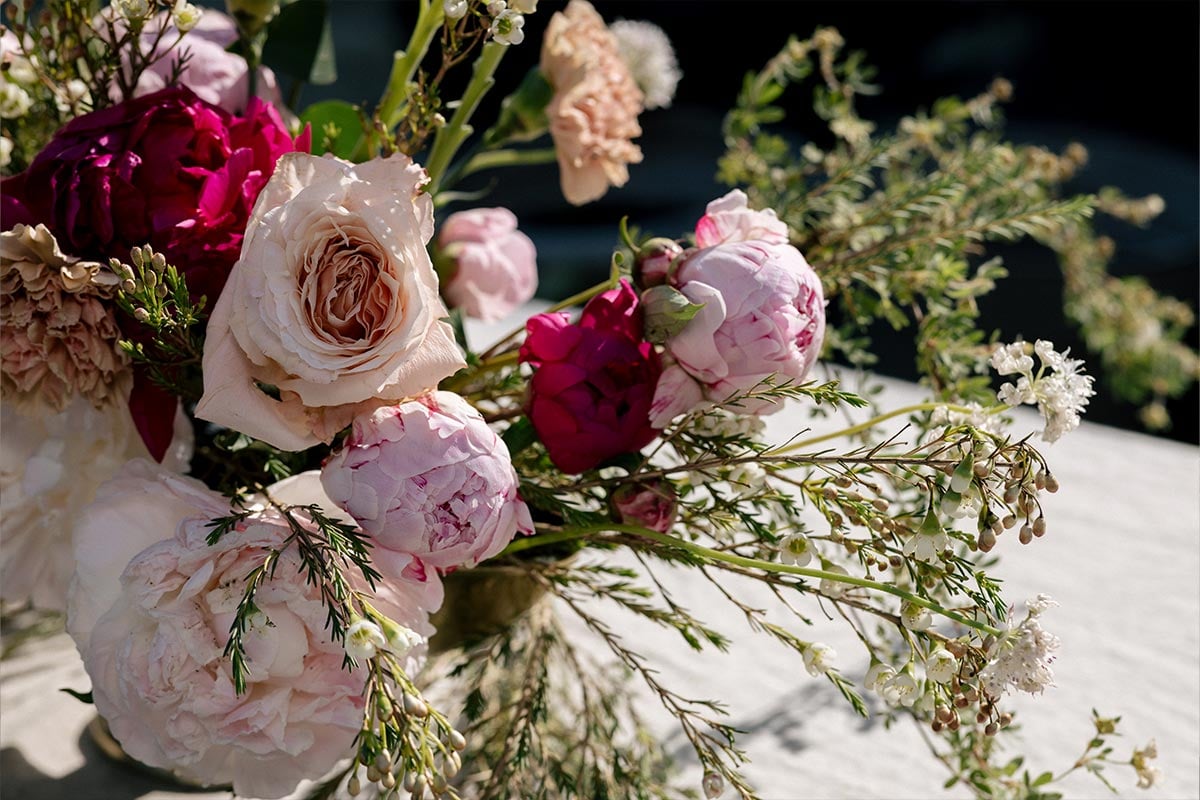
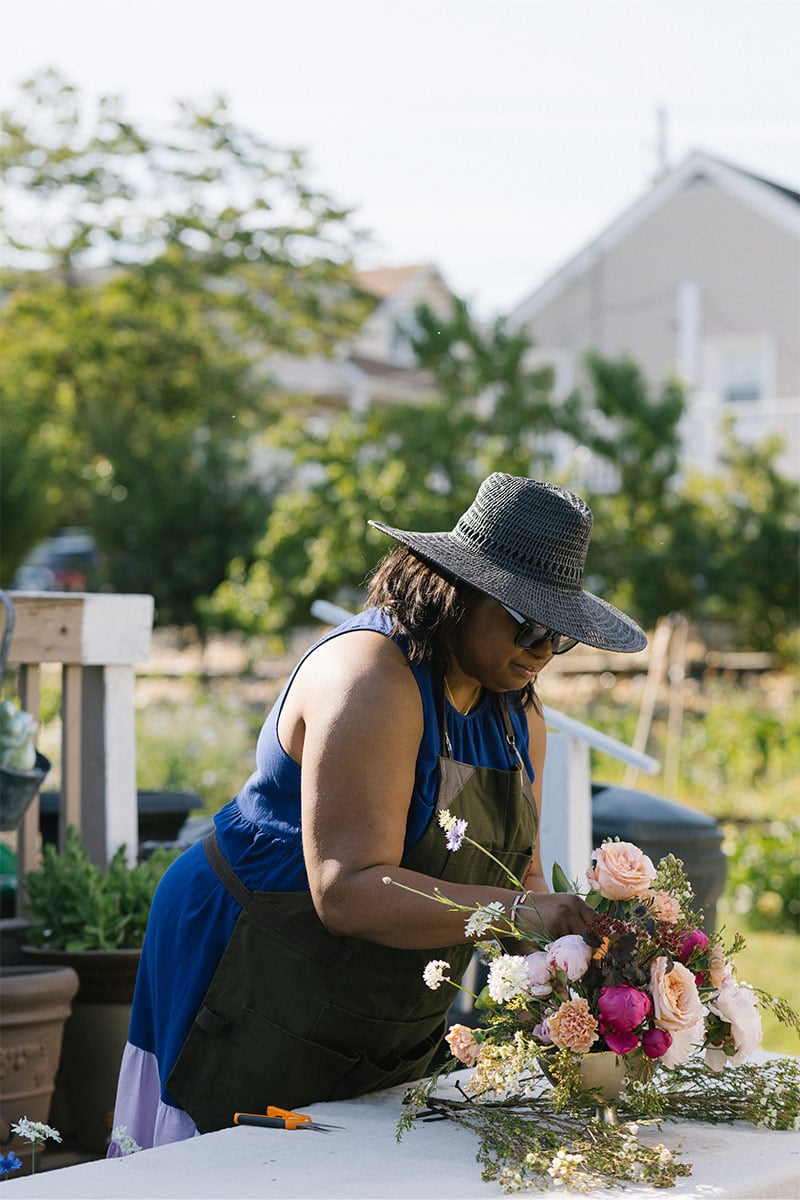
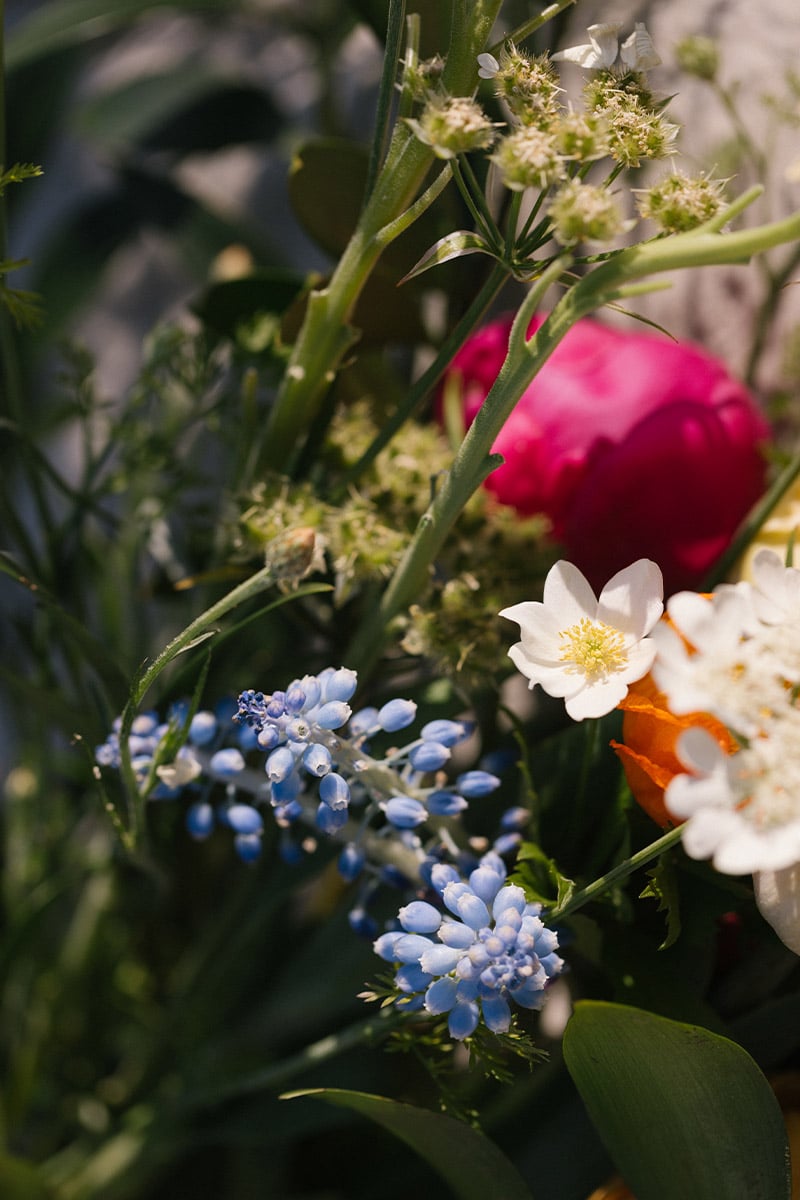
Marly Surena-Llorens spent her early years in Brooklyn, New York, but her home and her heart have been rooted in the Lehigh Valley for more than three decades. Still, she couldn't resist giving a shout-out to her old stomping grounds when she needed a name for her micro-floral farm and business in Allentown. Fenimore & Rutland are the names of two side streets from her former neighborhood.
Before Surena-Llorens was coaxing seeds into beautiful blooms at her growing space on the east side of the city, she was in the business of stationery cards and floral photography. But she had been a gardener for a long time, and making the transition to a flower farmer seemed natural. “I love having my hands in the dirt, I love being able to watch something grow from seed and being able to care for it,” she says.
Surena-Llorens offers classes in the art of bouquet making and also come-to-you floral bars, where guests can create their own arrangements. Fenimore & Rutland also does deliveries, special events, a subscription service and pop-ups, featuring a variety of annuals and perennials in the spring and fall seasons.
Surena-Llorens is aware that female flower growers are few in the Lehigh Valley. But local support makes all the difference. “It's important to me that our community understands where their flowers come from,” she says. “Not from a faceless international company, but they have an opportunity to develop a relationship with their local flower farmer. Many people think about farming as male dominated but I want to showcase this hard work is also done by very capable women.” Smaller still is the percentage of Black female farmers not just in the Lehigh Valley, but across the United States. “There's less than one percent of Black farmers in the country, period,” says Surena-Llorens. “There's even a smaller percentage of that, that are flower farmers.” She hopes that changes. In the meantime, she wants to call attention to those already doing the planning, planting, pruning and more. “I am so excited for the Valley to be more aware of the farmers here,” she says.
Fresche Flower Farm
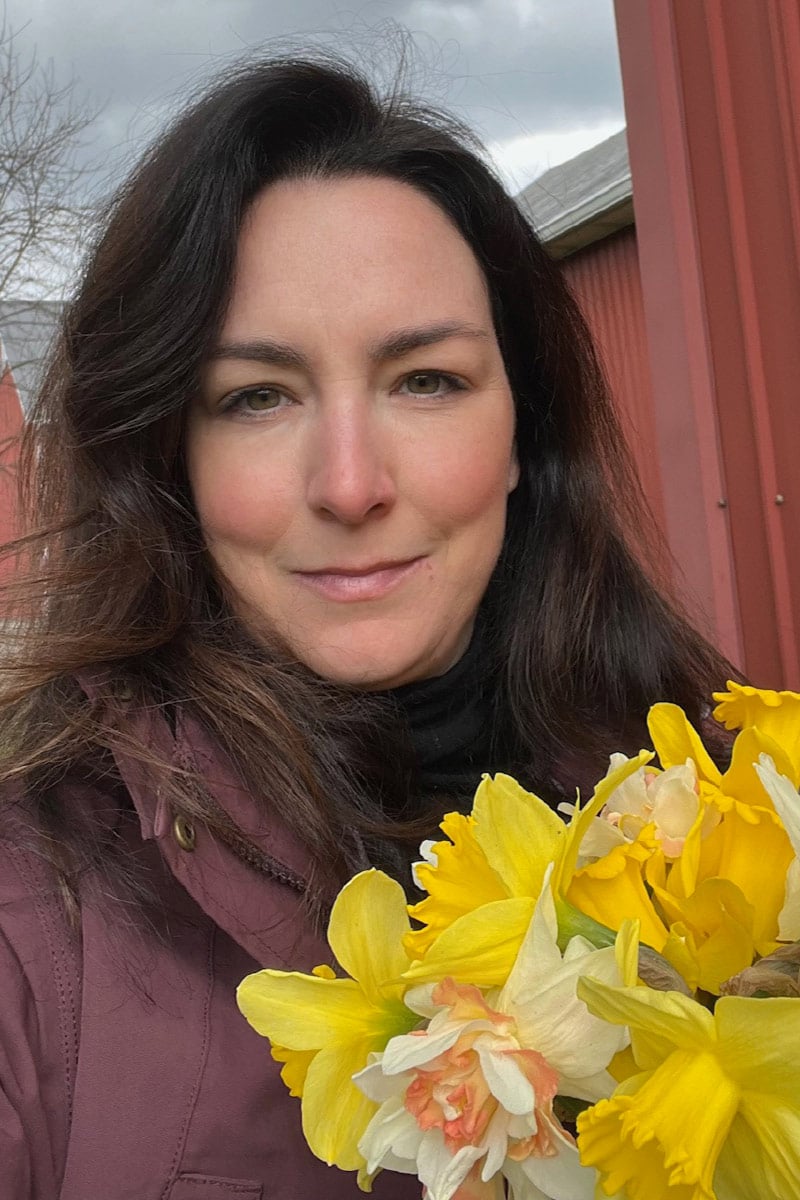
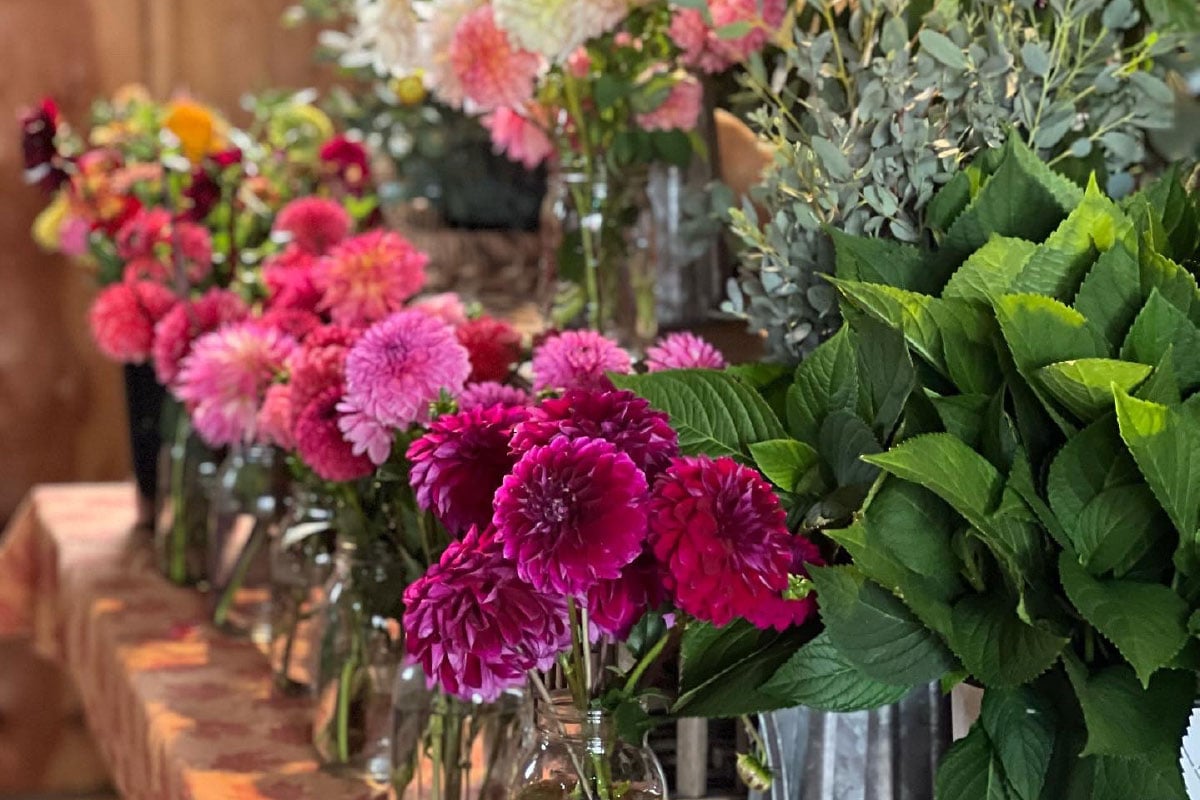
Macungie's Fresche Flower Farm is a boutique flower farm with a roadside stand that offers seasonal blooms like narcissus, lilacs, hydrangea and double-flowering zinnias. Owner Kate Bonstein credits her green-thumbed grandparents with getting her started. A class at Floret Flower Farm in Washington State also piqued her interest. Now she holds workshops of her own and offers a surefire way to freshen up a special event: “One of our popular requests is our flower bars,” says Bonstein. They bring the flowers and mason jars, and guests provide the creative juices to make their own bouquets.
Fortissimo Florals
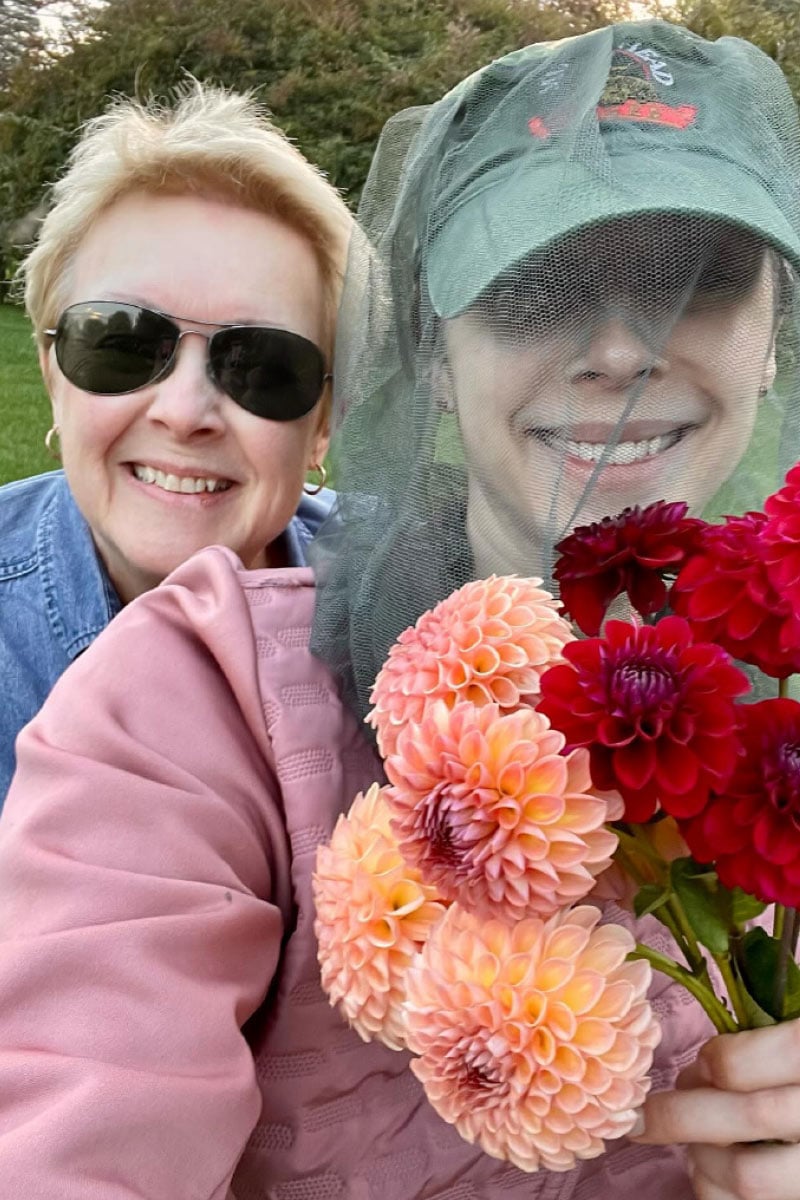
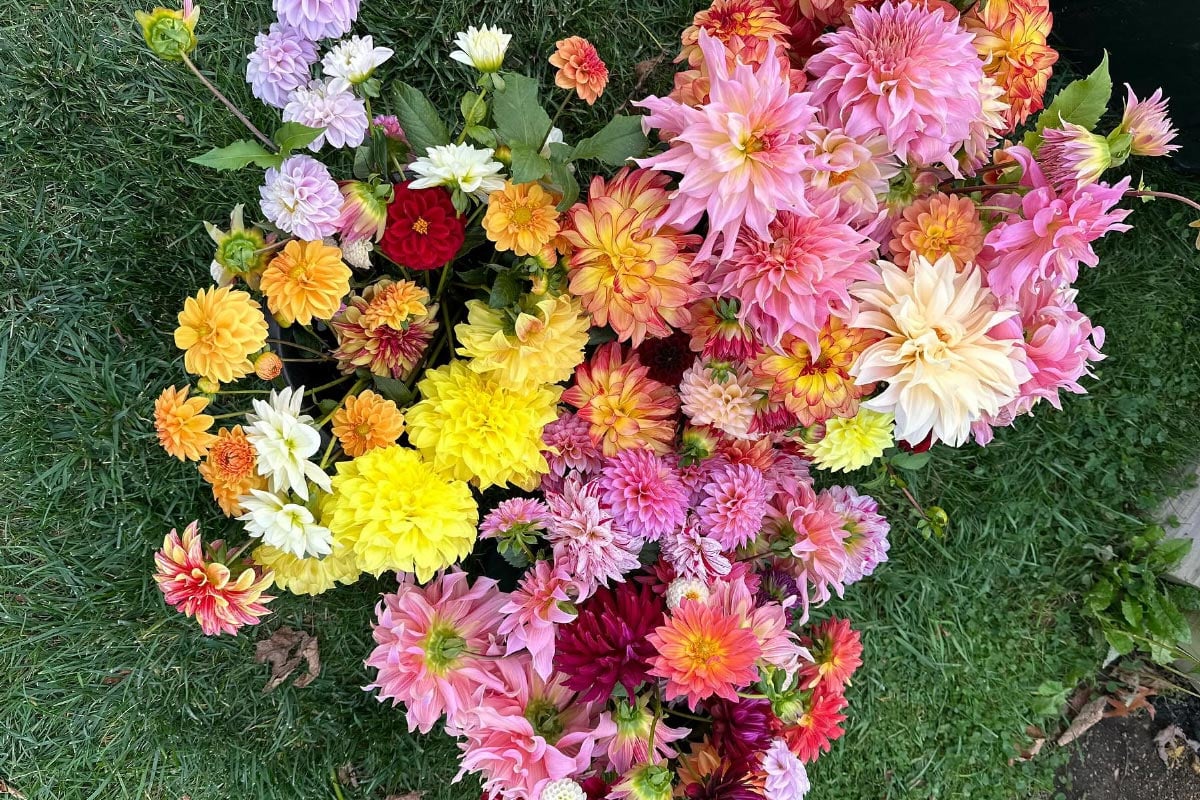
Adrienne Sorg credits her mother, Vicki, with helping to mold her into an enthusiastic plant person. Following graduation from Parkland High School, Sorg moved to New York City, where she used her apartment balcony to grow what she could. The pandemic brought her back to the Lehigh Valley, where she saw firsthand the enthusiastic reception that awaited her mother's dahlia plants. “People were blown away by the flowers and we didn't have enough to sell to all who wanted, as these were just plants mom planted for herself,” says Sorg. Now the two both have their hands in the dirt at Fortissimo Florals, their flower farm in North Whitehall, where the dahlias are plentiful, along with a variety of annuals.
Bee Well Blooms
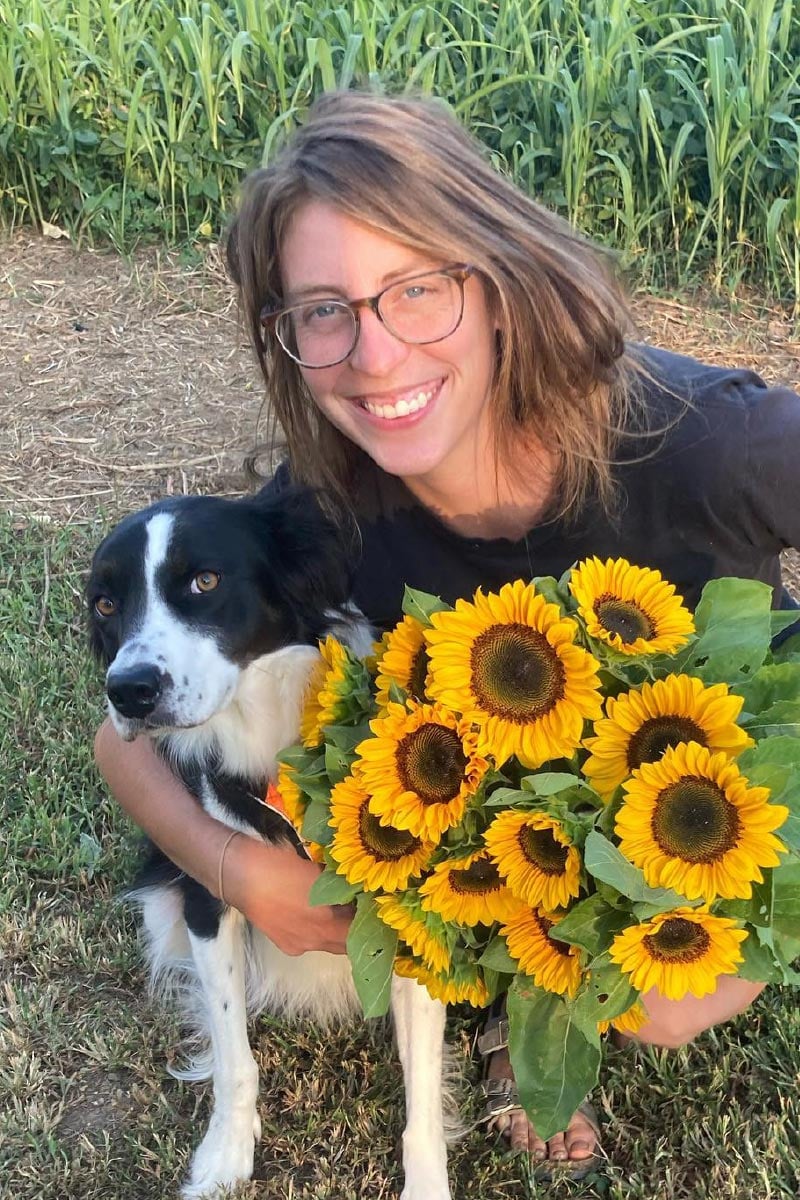
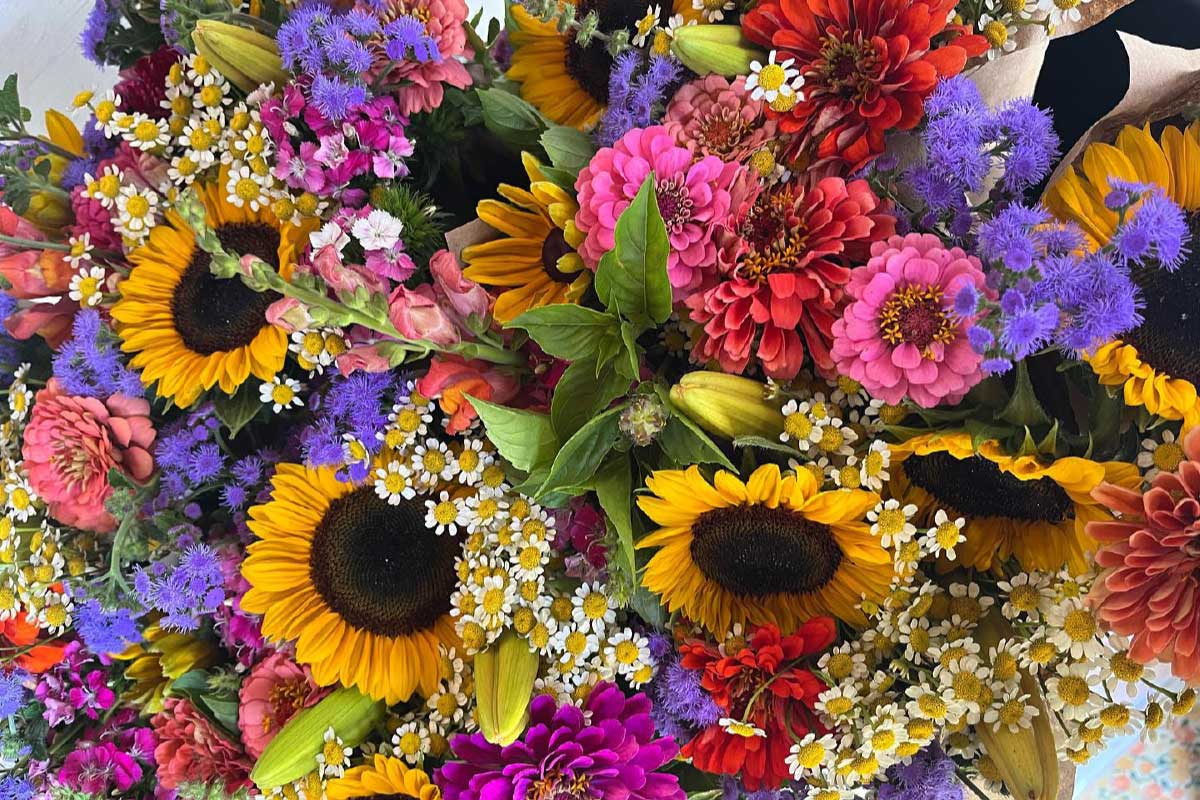
Big things are happening for Bee Well Blooms. Sarah Smeltz, who owns the business with her husband, Kevin, began growing flowers for fun while she was studying horticulture at Penn State University. That took her first to The Seed Farm incubator program in Emmaus, then to the couple's first home in Coopersburg, and finally to a 40-acre farm in Germansville, where, as of January, major renovations were taking root. “We are currently rebuilding all of our greenhouses and high tunnels, constructing a new walk-in cooler, assembling an irrigation system and more,” Smeltz says. A roadside stand is also in the works, where they hope to offer some of the nearly 100 varieties of flowers they grow on the farm.
Bubbly Hills Farm
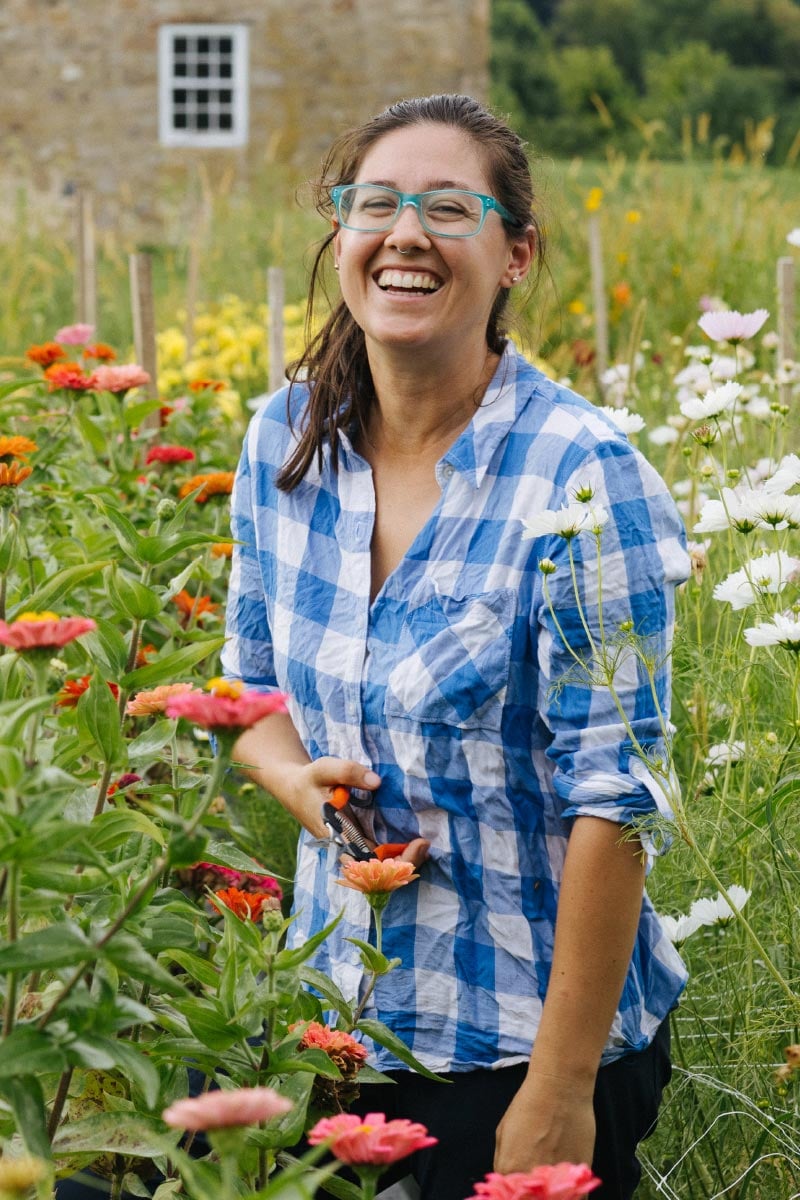
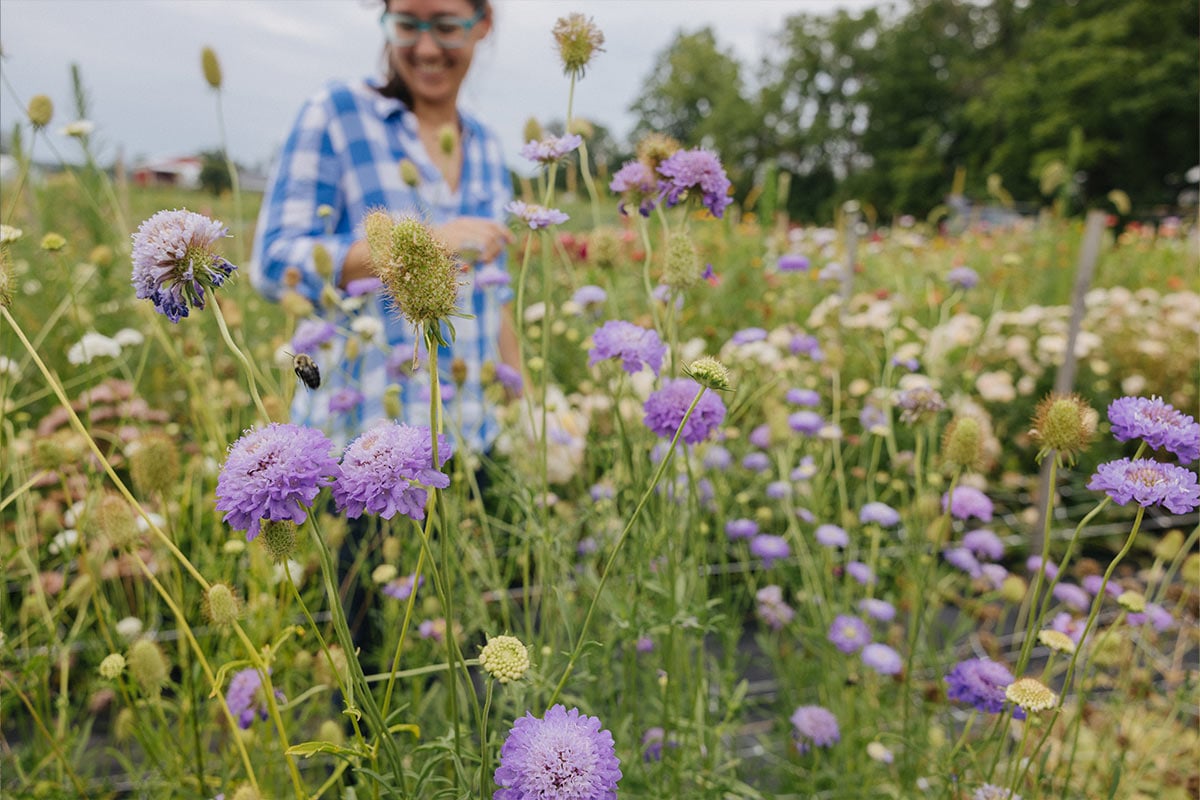
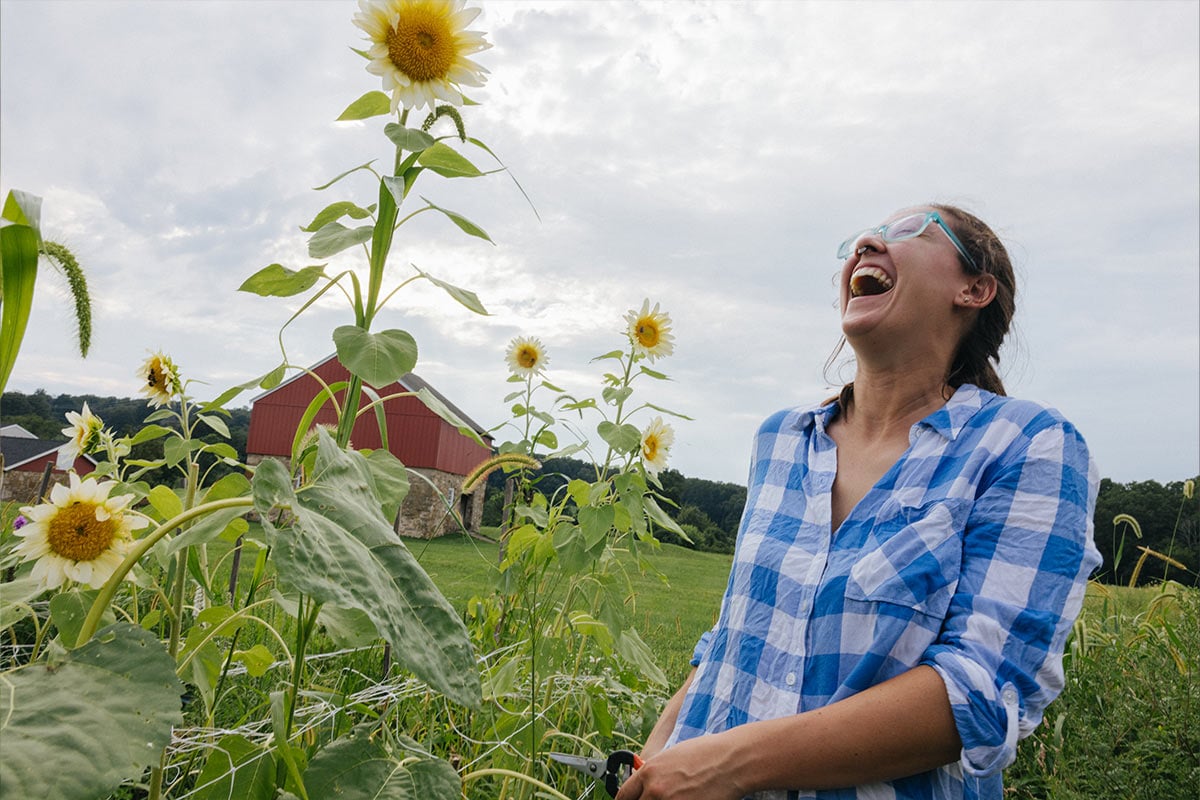
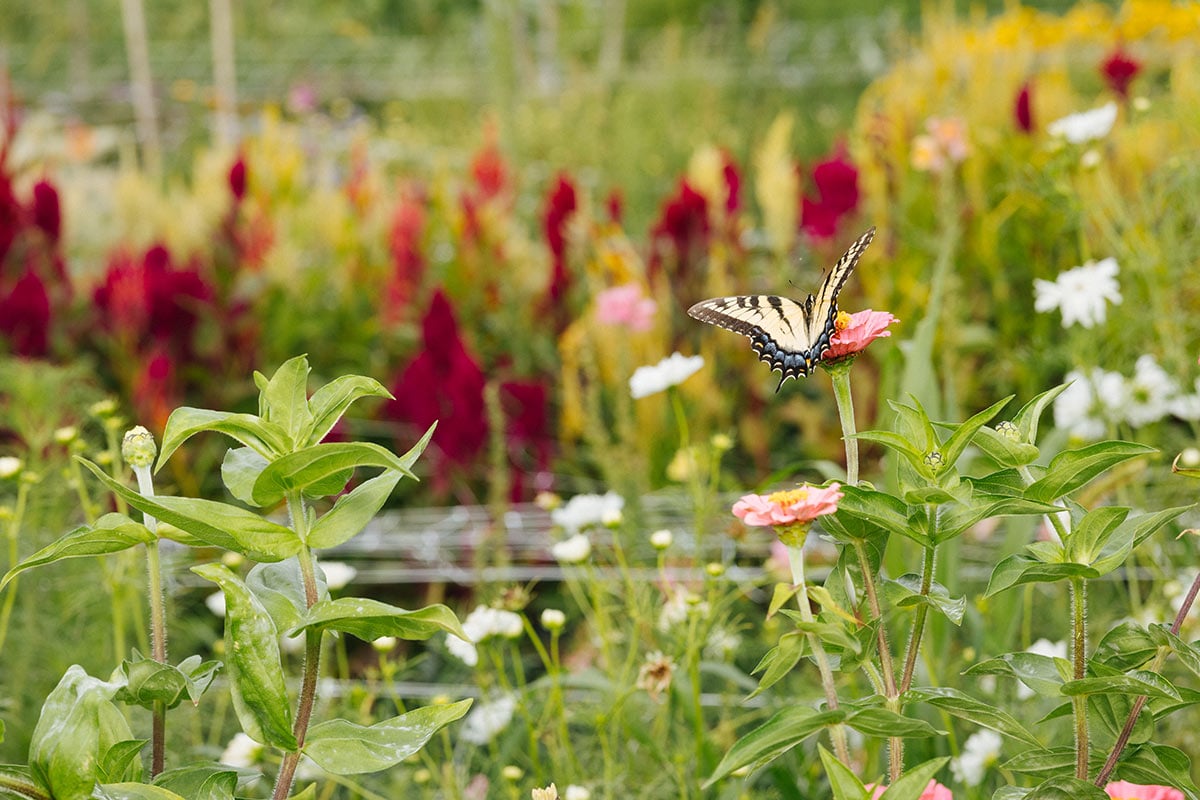
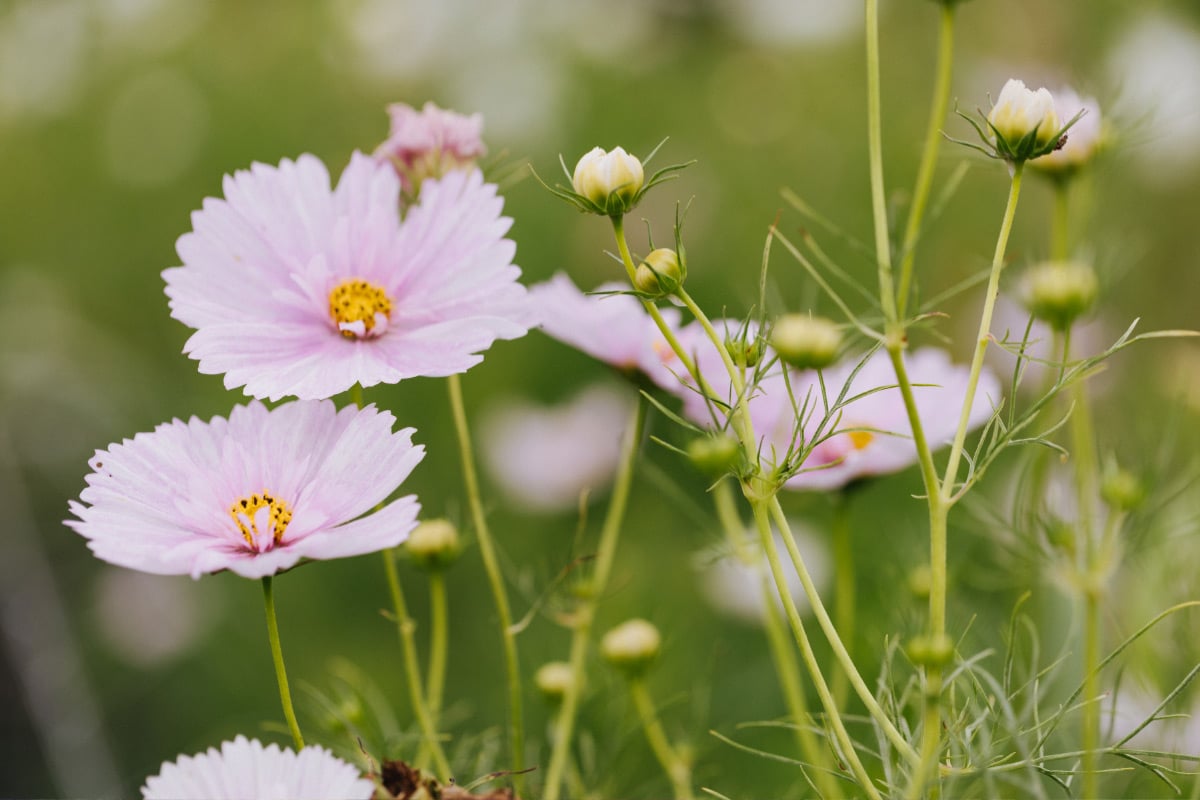
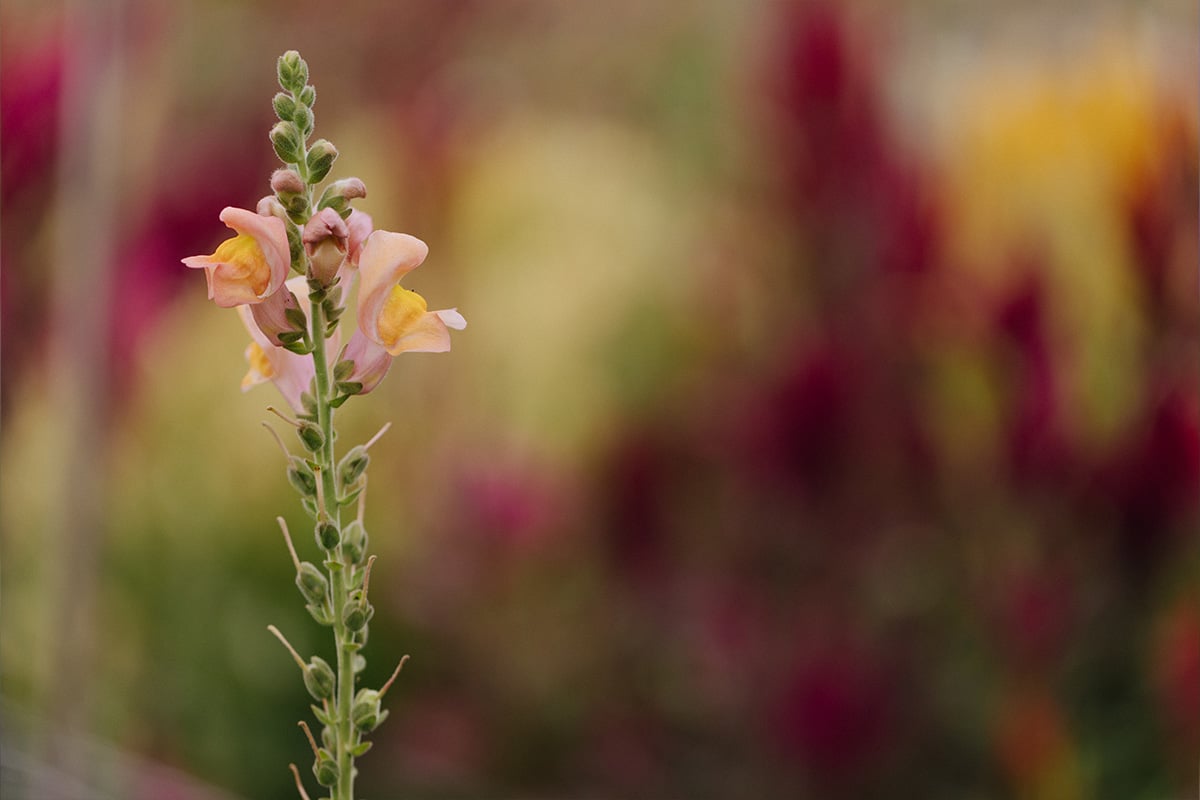
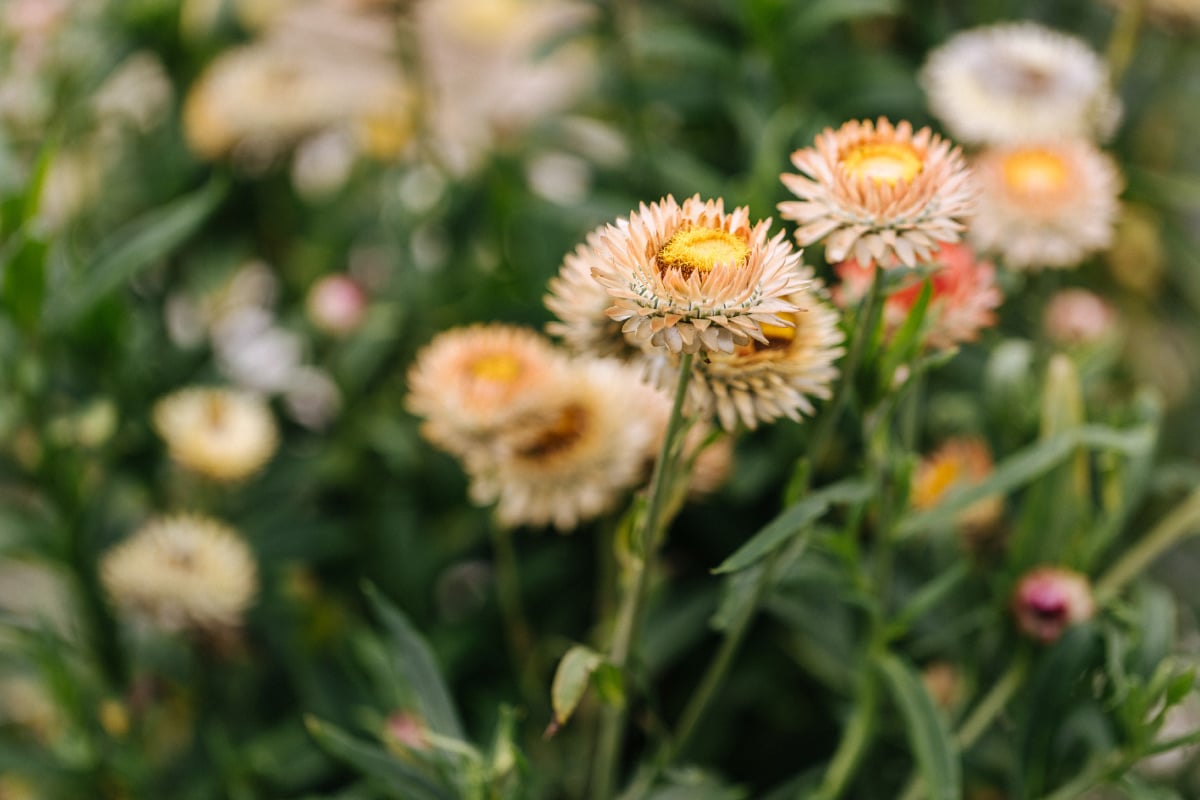
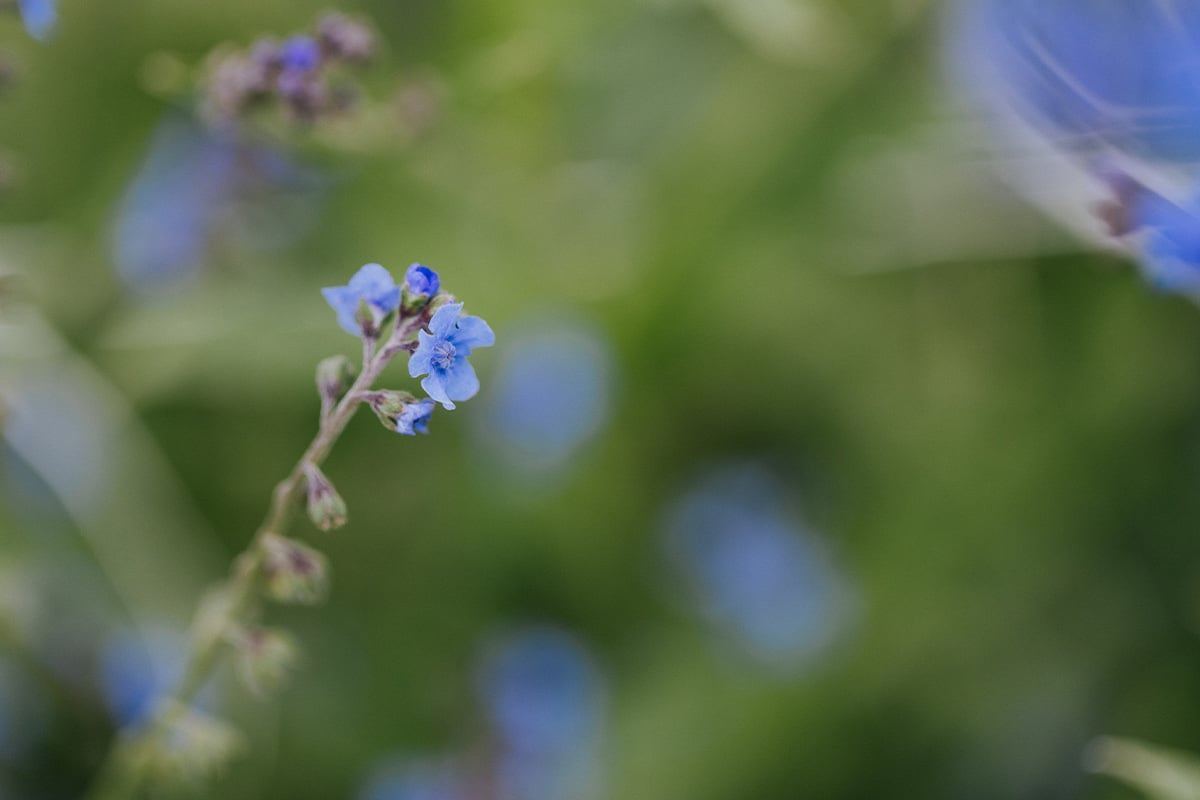
When Lizzy Beller was deciding on a name for her farm, she decided to give a nod to one of her most obvious attributes. “A lot of people have described me as bubbly,” she explains. The rest is just basic geography: “'Hills' is for Pennsylvania because it's covered in hills.” And yet her name hasn't been left out of the mix entirely at Bubbly Hills Farm; Beller says one of her favorite flowers to grow there is the lisianthus, which may not be spelled like her first name, but does sound a lot like lizzyanthus.
Had she chosen a different path, Beller might have been growing carrots and potatoes instead of asters and zinnias at Bubbly Hills. She enrolled in the Rodale Institute's farmer training program during the height of the pandemic when supply chain issues were causing food shortages in some parts of the country. “I thought I wanted to be a vegetable farmer and then I was just super drawn to flowers,” says Beller.
She's currently renting growing space in Emmaus through The Seed Farm's incubator farmer program while she looks for a place of her own. “Last year was my first season of growing some really specific flowers that are typically not offered in grocery stores and such,” Beller says. That includes delphiniums and double tulips, the latter of which looks like a regular tulip's bigger, more vibrant brother, with petals that are so plentiful the flowers resemble roses or peonies in full bloom.
Beller says her growing techniques can't be considered organic, but they are eco-friendly. She's learning how to be more preventative in her planting and maintenance practices to minimize the use of pesticides.
Her flowers are for sale at the Nazareth Farmers Market, or through a subscription service. What does she love about her line of work? Simple: the smiles. It's one of the perks of being in the business of handing over beautiful bouquets. That's something that probably would have been lacking had her original farming plan worked out. “Vegetables make me smile, but they don't make everyone smile,” says Beller.
Willow Haven Flowers
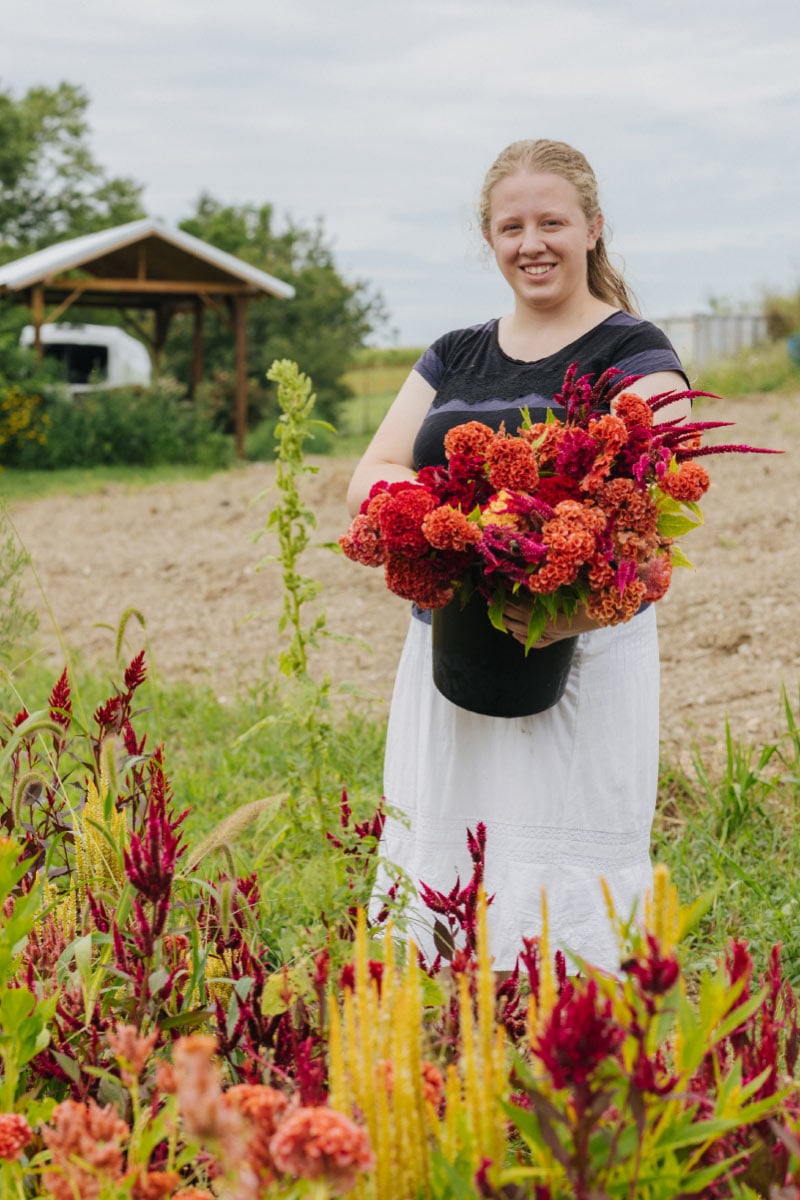
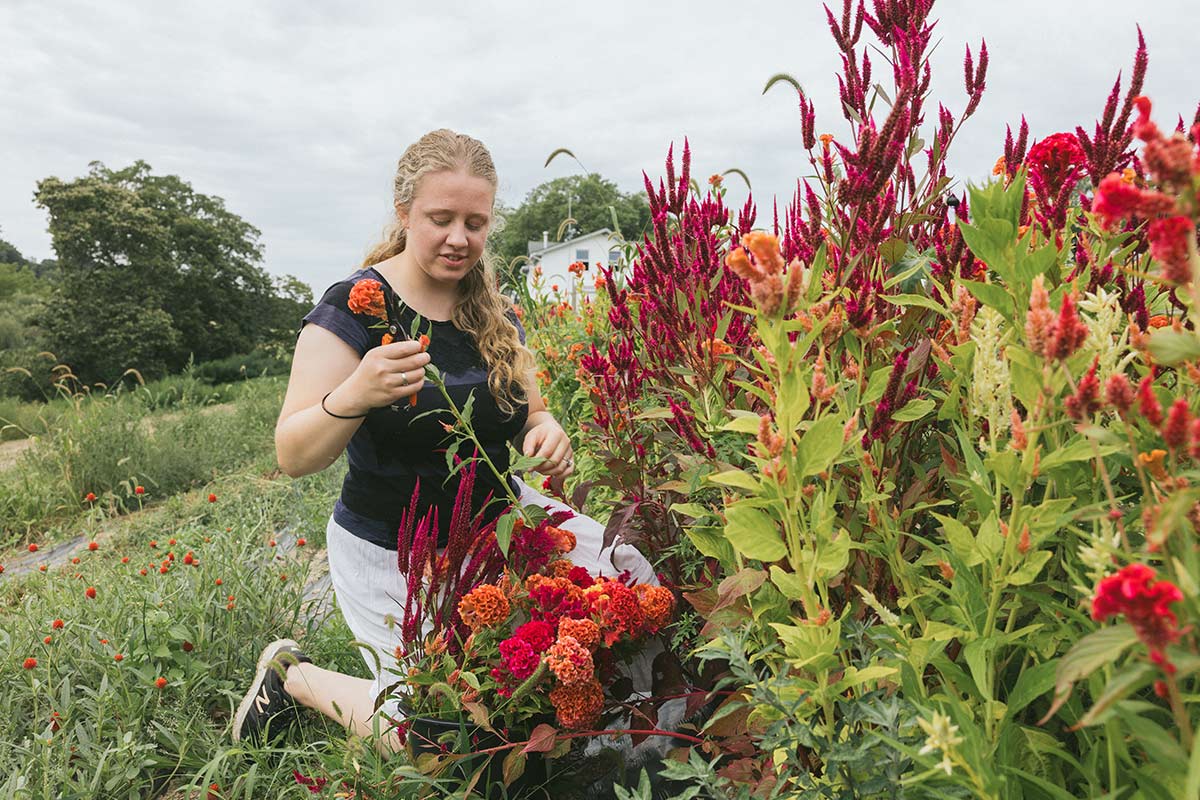
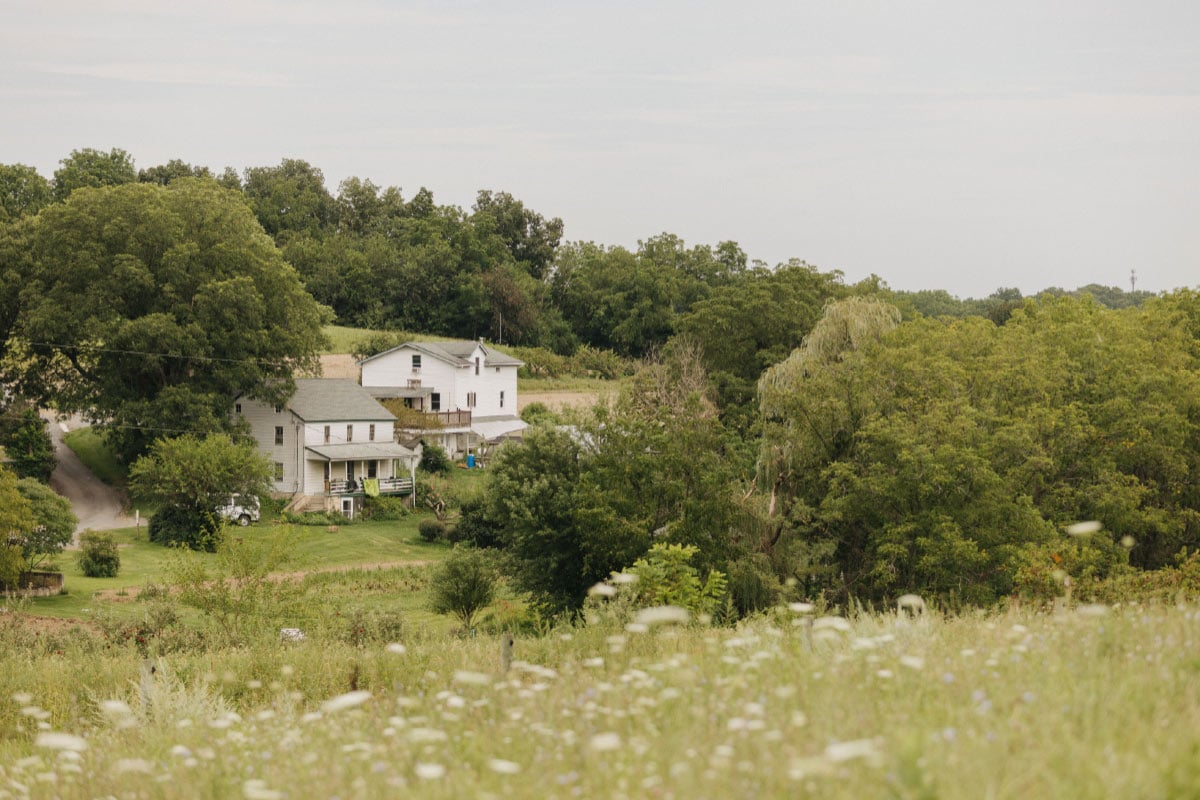
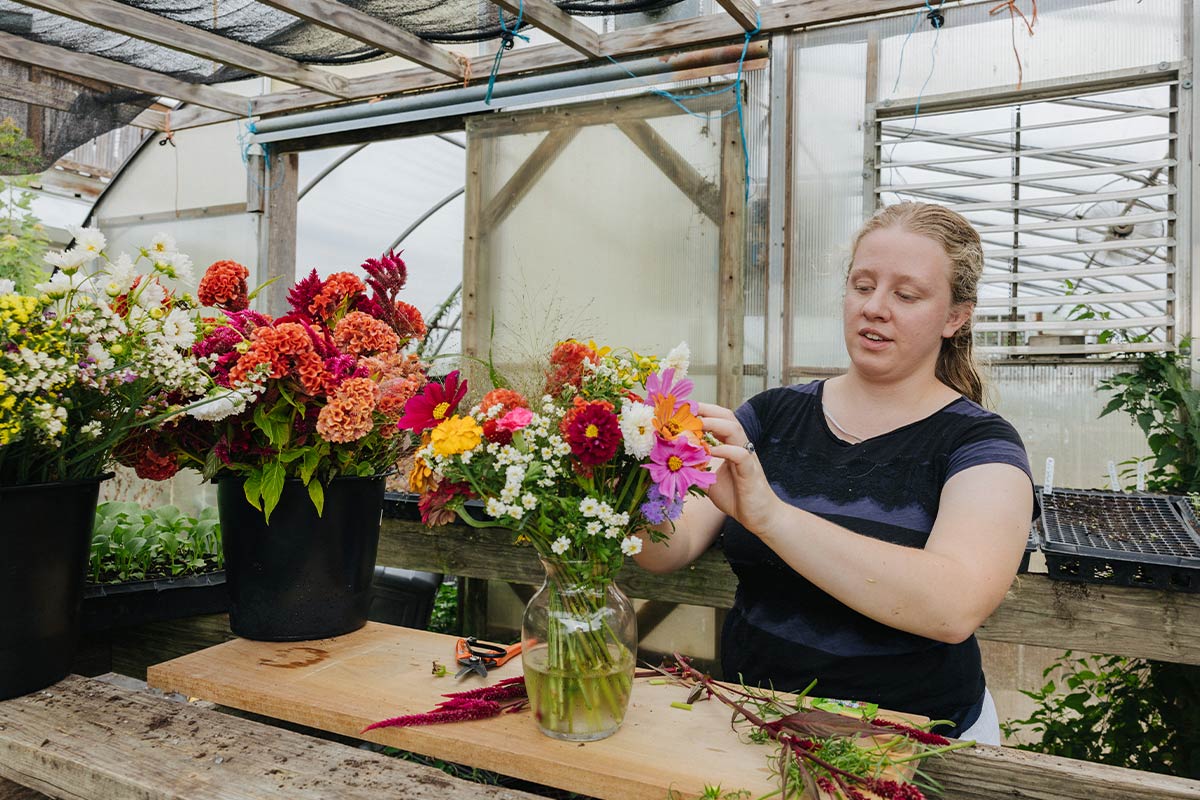
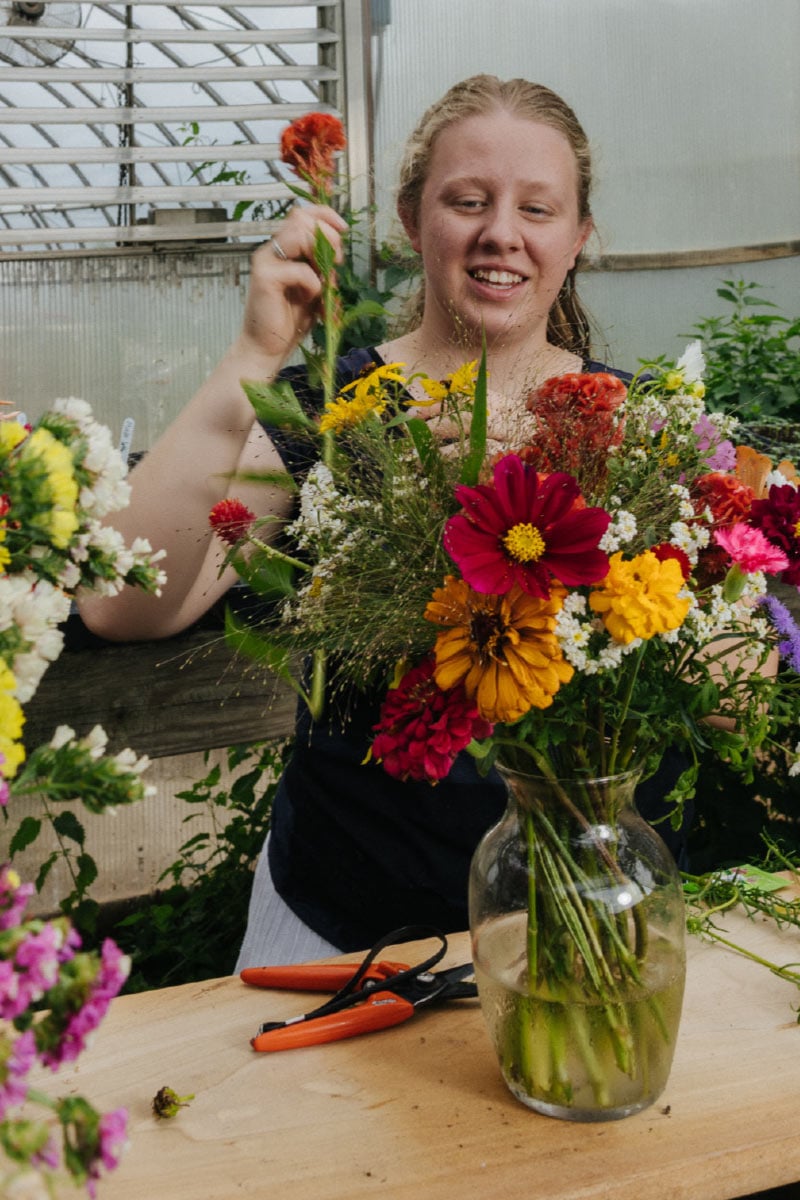
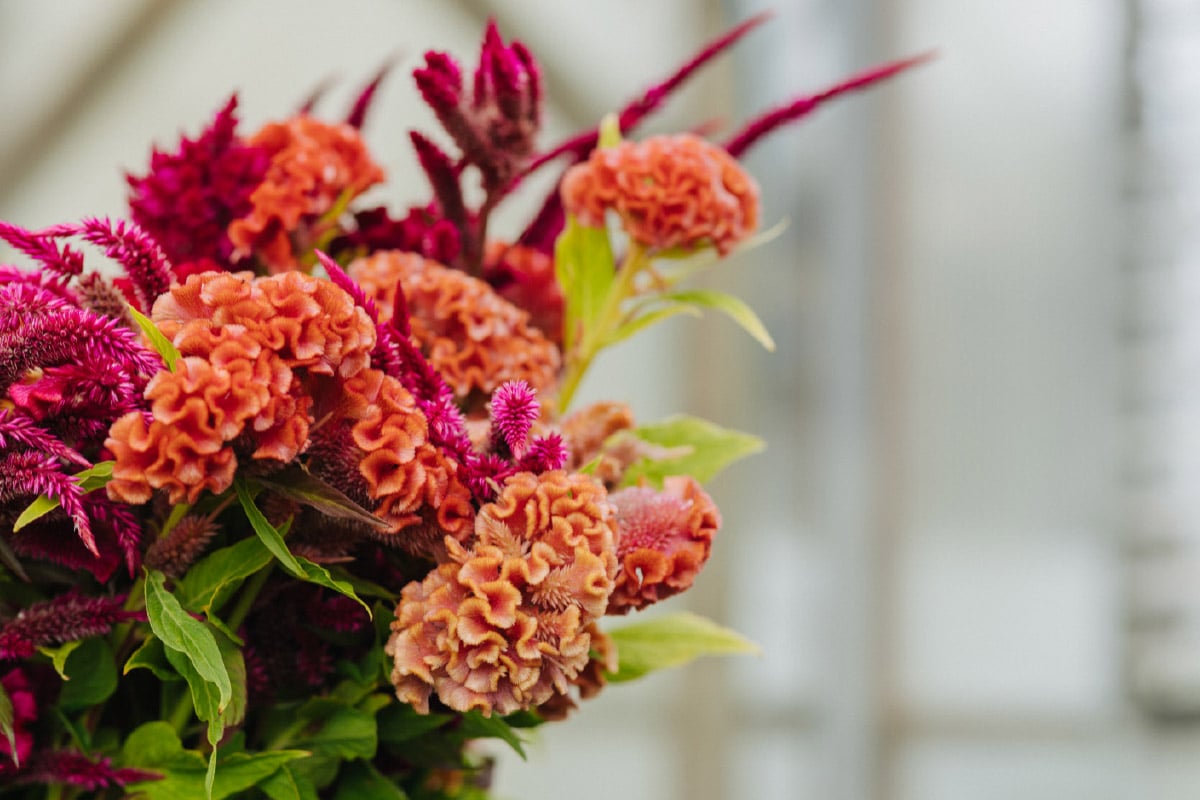
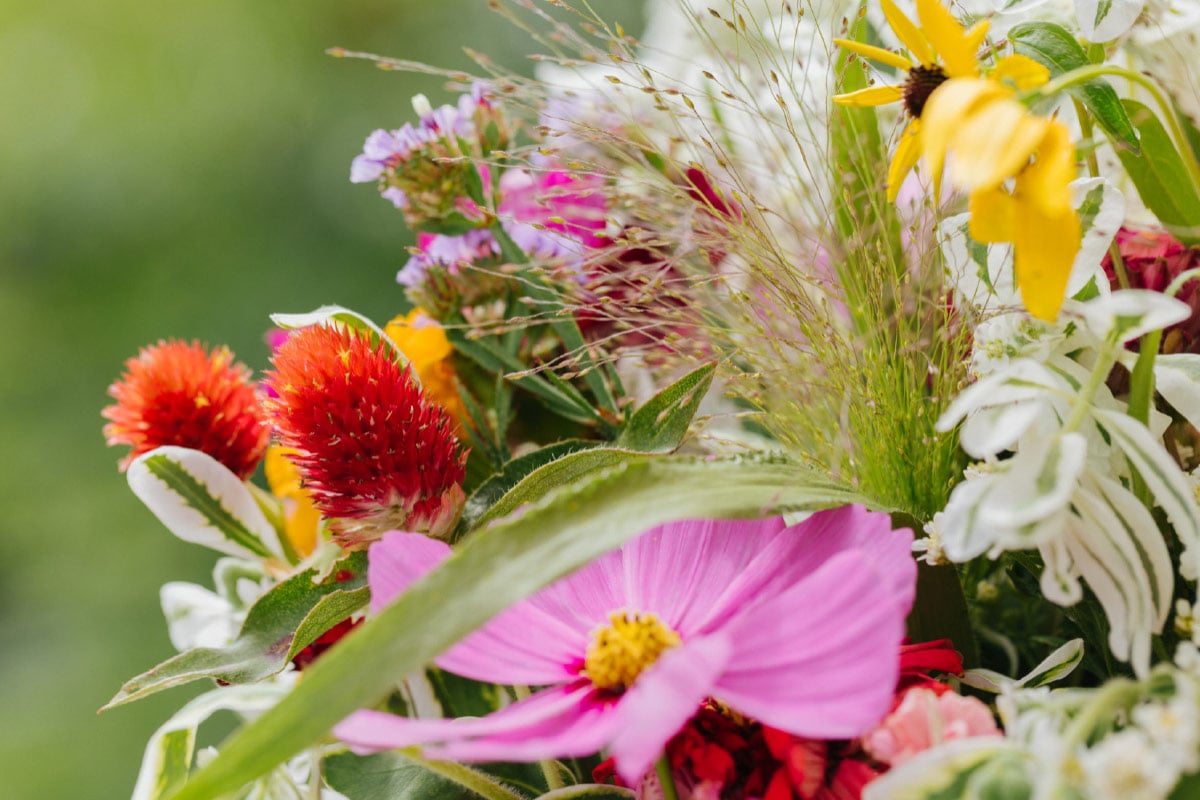
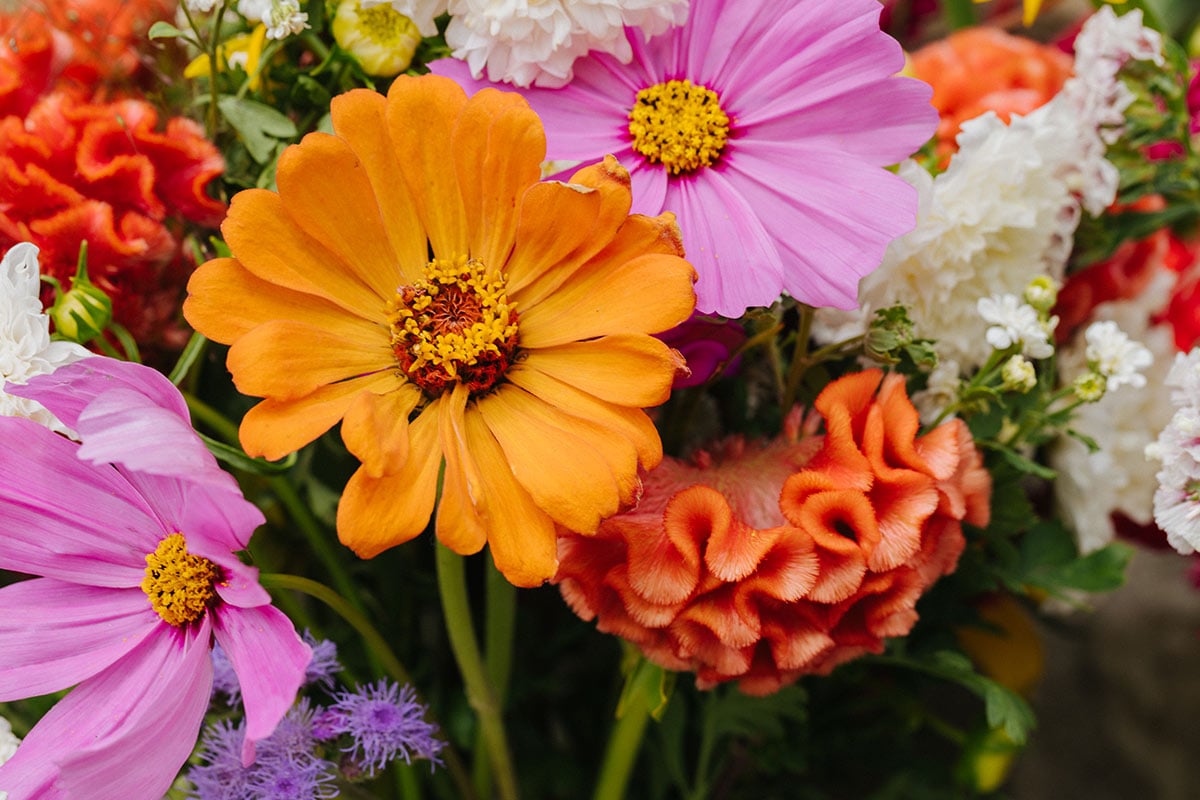
Farming is in Annika Vercillo's blood. Her parents, Reuben and Tessa DeMaster, are the owners and caretakers of Willow Haven Farm in New Tripoli. Vercillo and her eight siblings have all pitched in over the years, tackling everything from weeding, washing and harvesting the crops to packing the farm's market boxes, which offer an array of locally grown and sourced meats, produce and bread along with other kitchen and pantry staples. Vercillo started making pies and cookies to sell at the farm when she was 12 years old. When she was a senior in high school, she added another skill to her repertoire: growing flowers. “It was a way for me to branch out a little bit,” she says. It was also a way to sock away some cash. Vercillo was able to pay for her last three years of schooling at New Hampshire's Thomas More College of Liberal Arts with the money she made from her flower sales.
Now, post-graduation, she's still at it, at Willow Haven Flowers, her designated growing space on the family property. Certified organic annuals are her specialty: sunflowers, zinnias, cosmos and snapdragons, among others. Vercillo offers a flower subscription service with delivery. She says she delights in those deliveries, for the memories flowers can evoke in the recipient: “They remind people of when they were able to garden, or flowers their grandparents grew. They just make people's days brighter, more colorful, happier.”
It's one of the sustaining joys that helps her deal with the drudgeries of the job. She does most of the labor herself. “There's definitely burnout by the end of the season when you're really tired and you have to keep growing,” Vercillo says. Even more challenging, though, might be the planning, marketing and promotions that go along with it. “It takes a lot of work on the business side,” Vercillo says. “For me, growing flowers isn't hard. I love doing it.”
Kore Coffee and Flowers
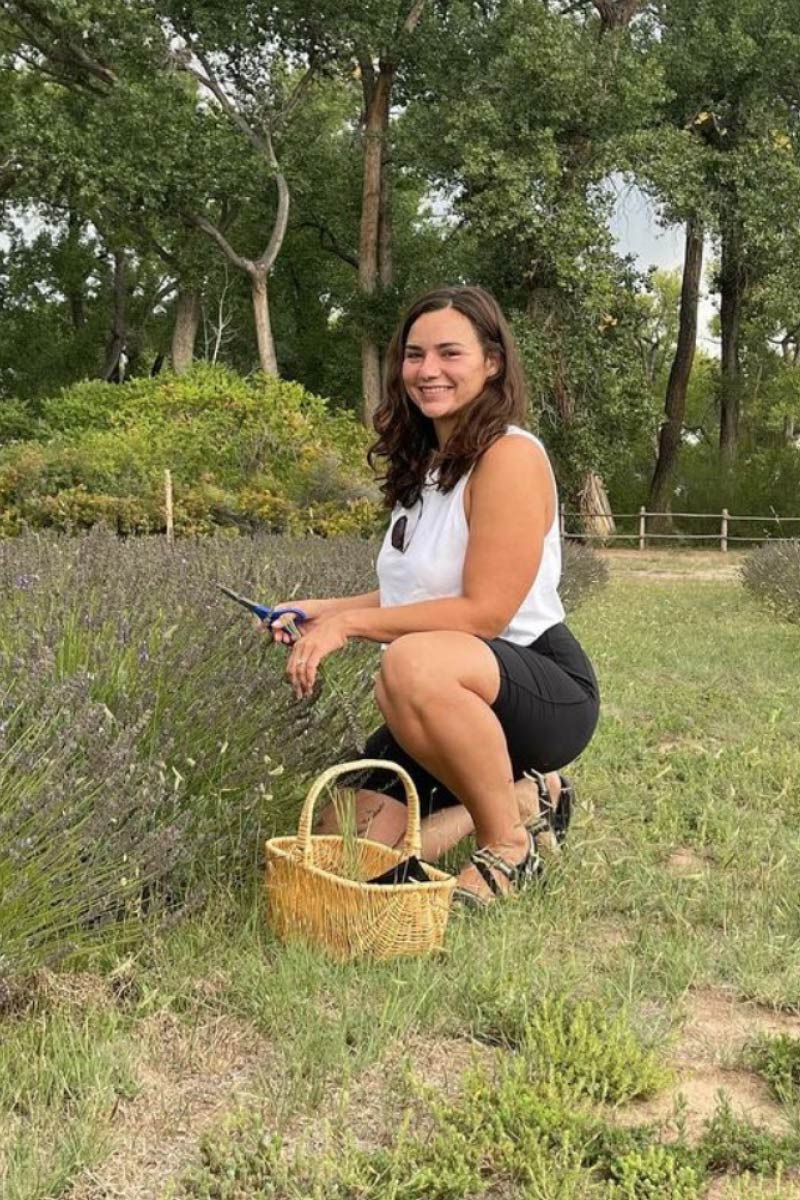
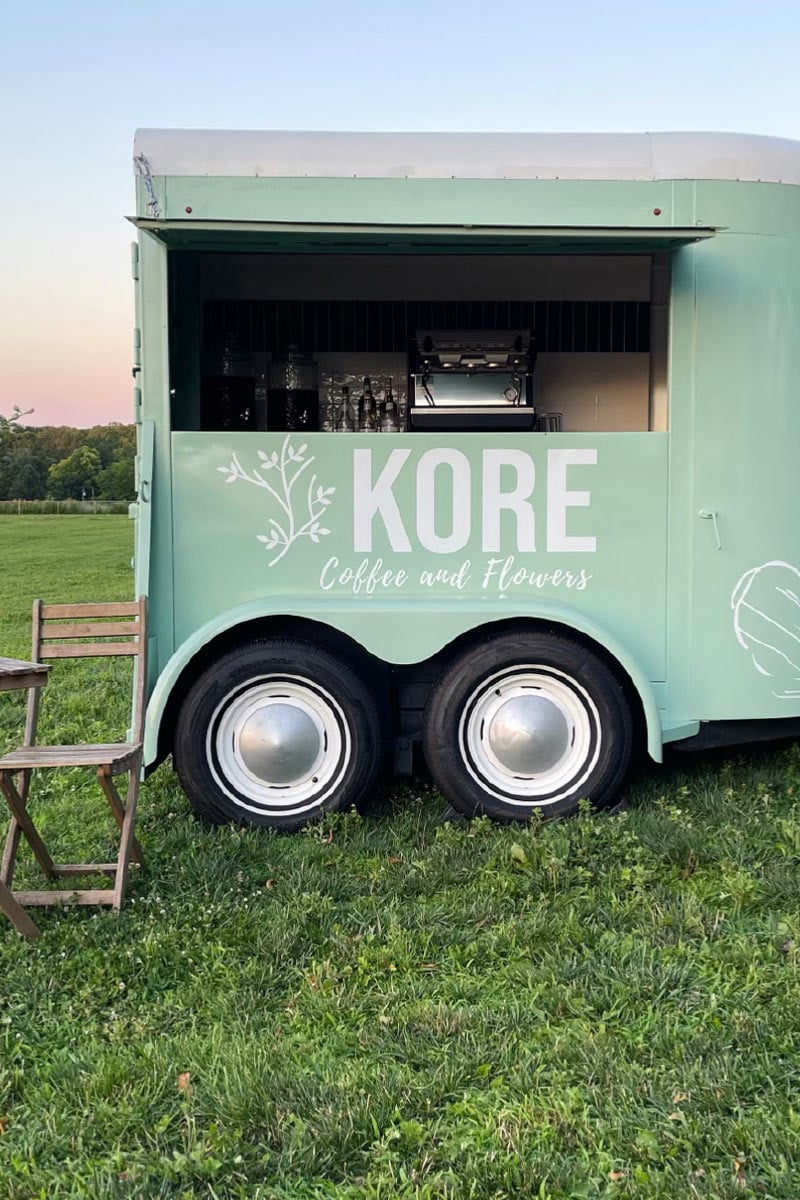
Melissa Miller pursued dual passions of art and business while she lived and worked in Santa Fe, New Mexico, and Paris, France, before returning home to the Lehigh Valley to get an MBA at Cedar Crest College. All of that laid the groundwork for what Miller describes as a woman-owned and goddess-inspired venture, Kore Coffee and Flowers: “This fusion of business and the artistry of cultivating flowers not only defines my professional journey but also allows me to savor the fulfillment of pursuing a profession that encapsulates both my skills and passions.” Her nine-acre farm is in Orefield, where she grows varieties like delphiniums, chrysanthemums and statice, but she can go mobile, too, and throw in a caffeine kick, thanks to her vintage coffee trailer.
Published as “Get to Know the Lehigh Valley's Flower Farmers” in the May 2024 edition of Lehigh Valley Style magazine.







